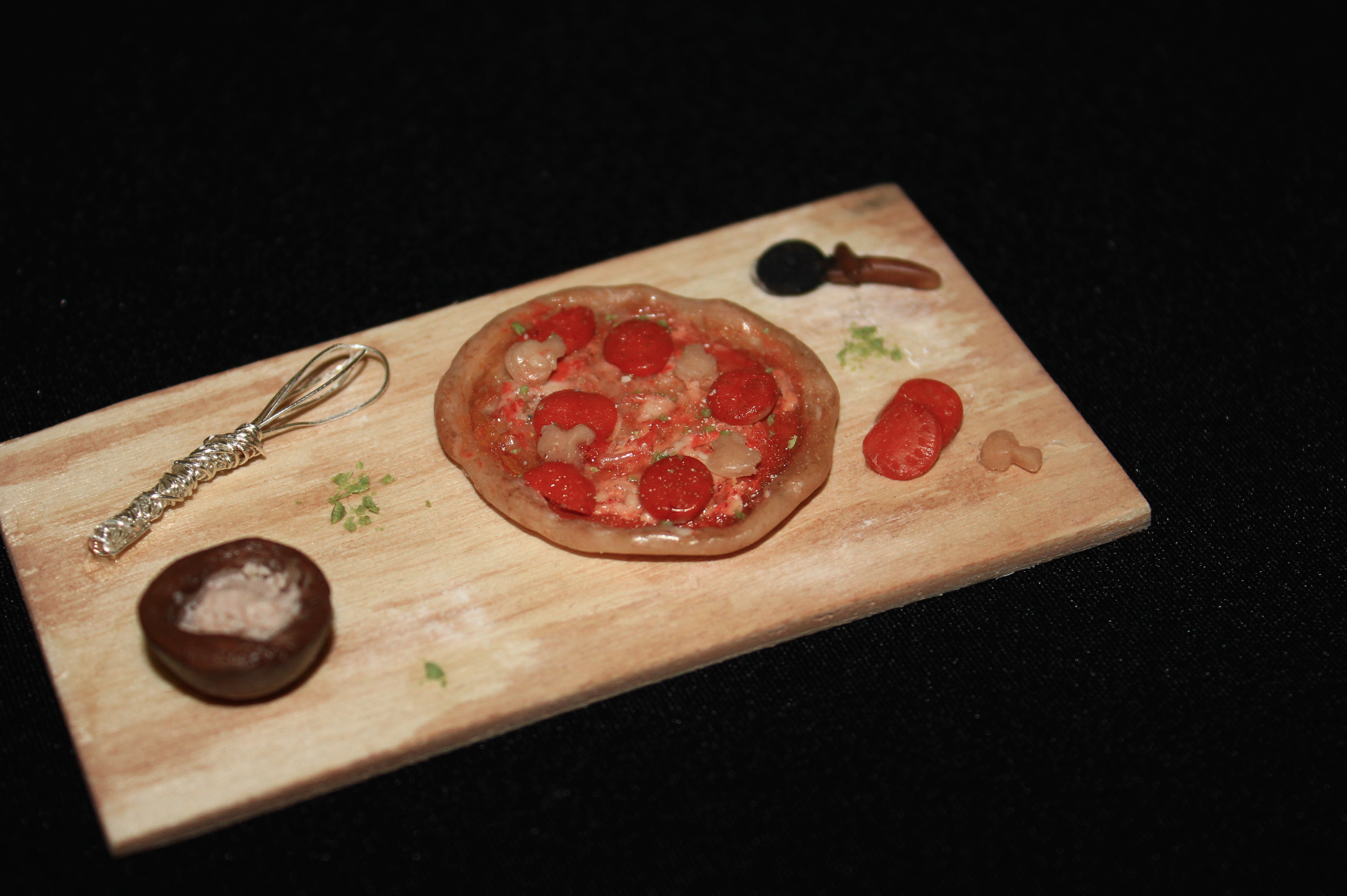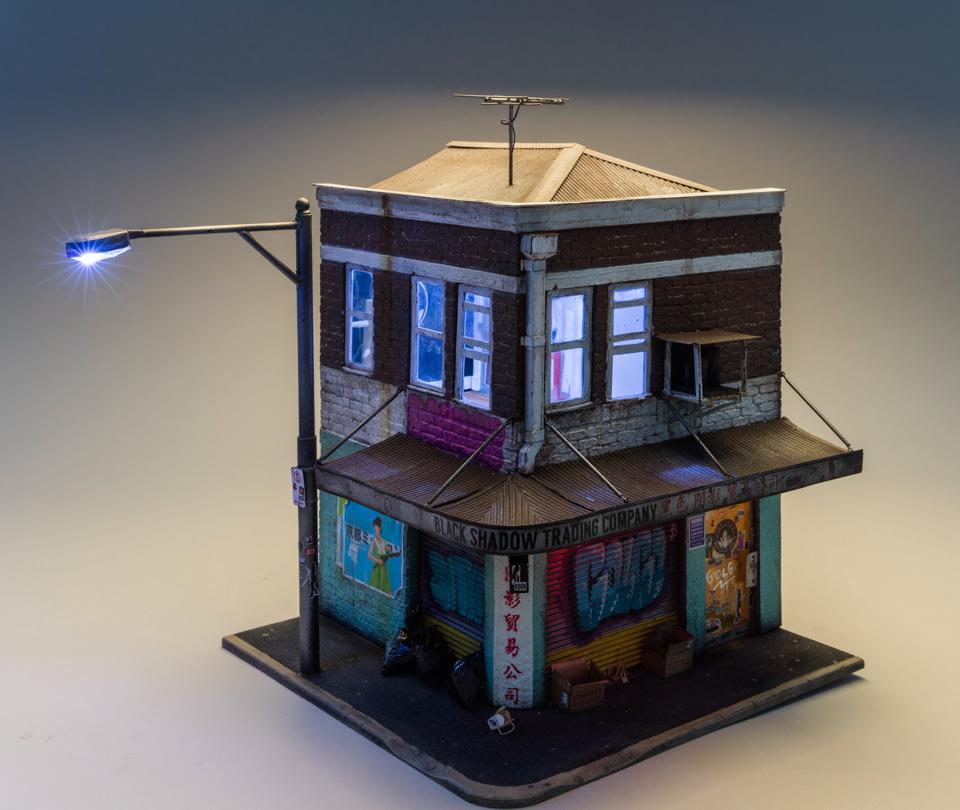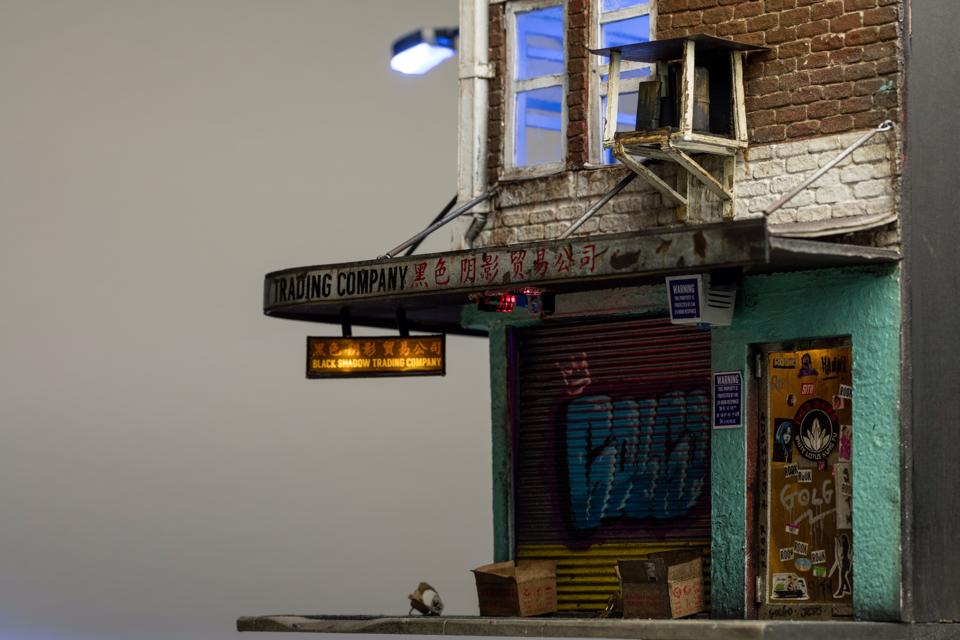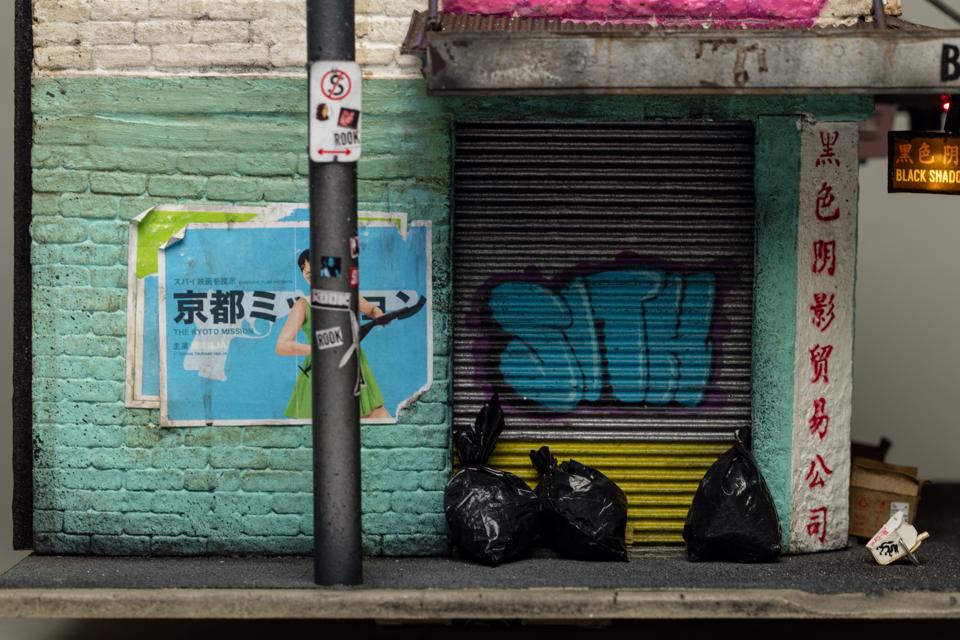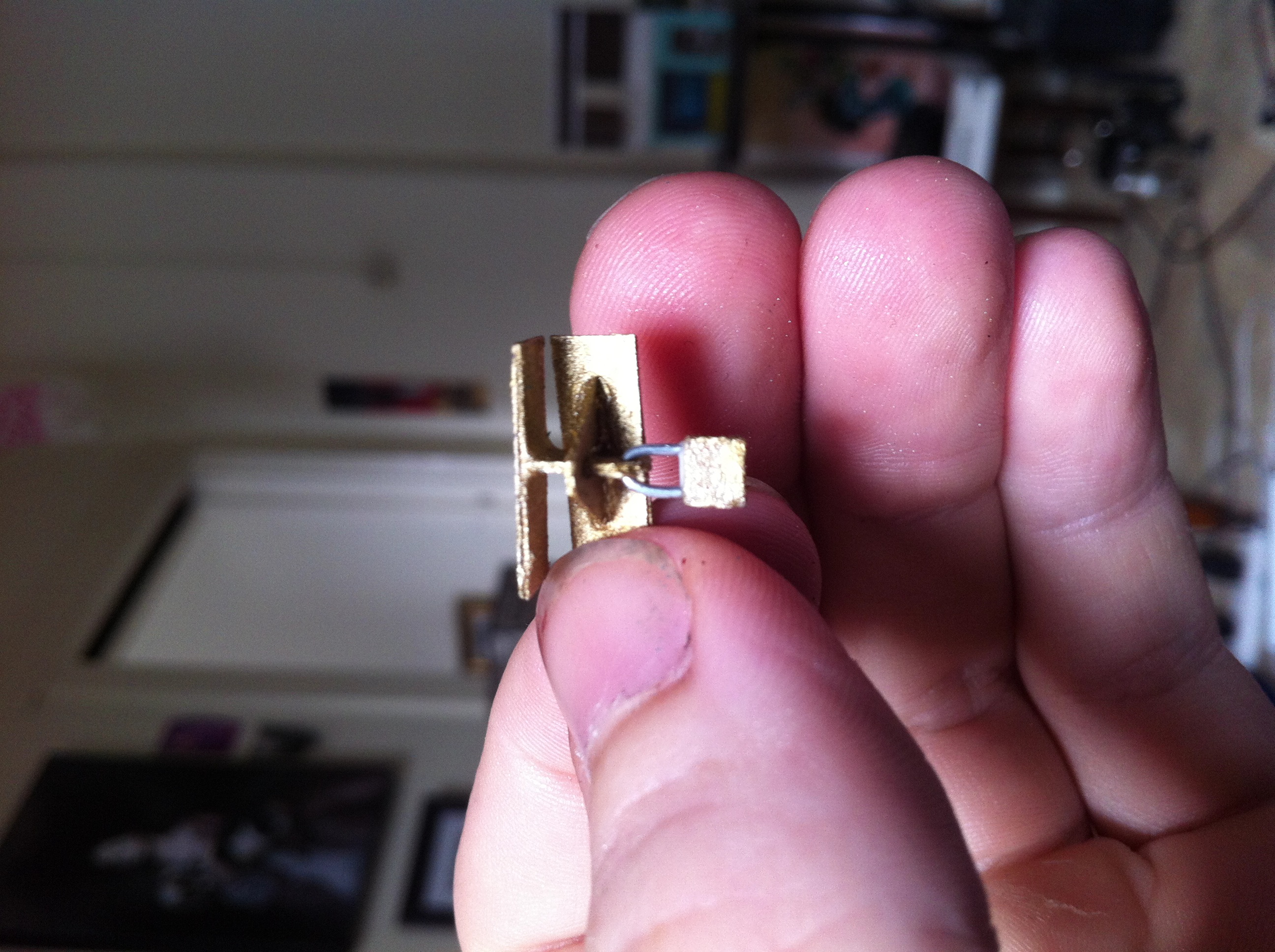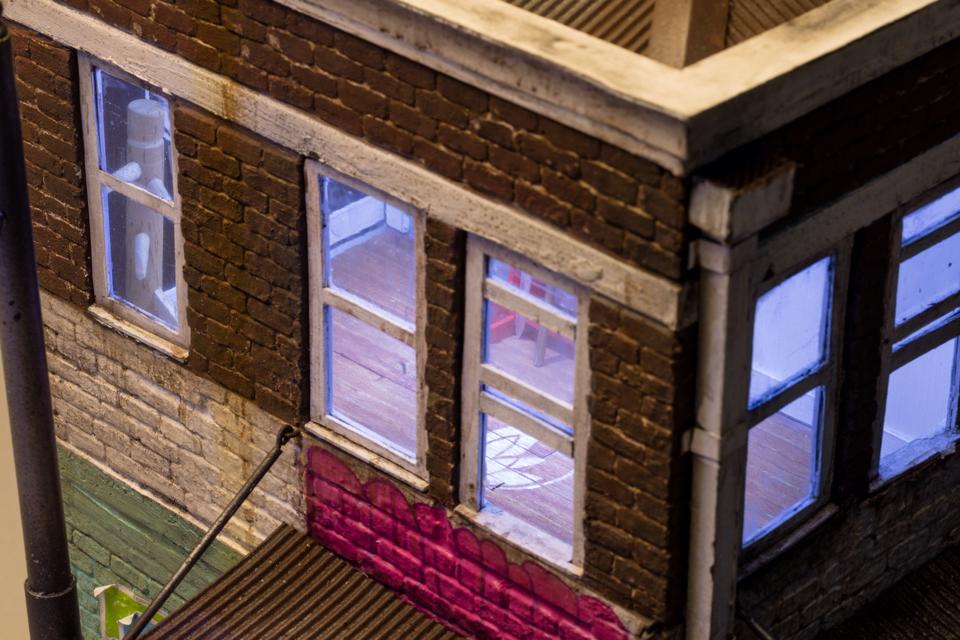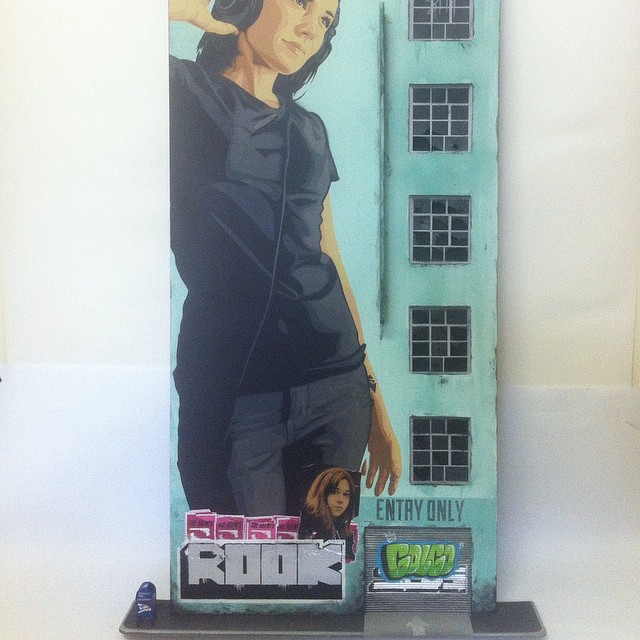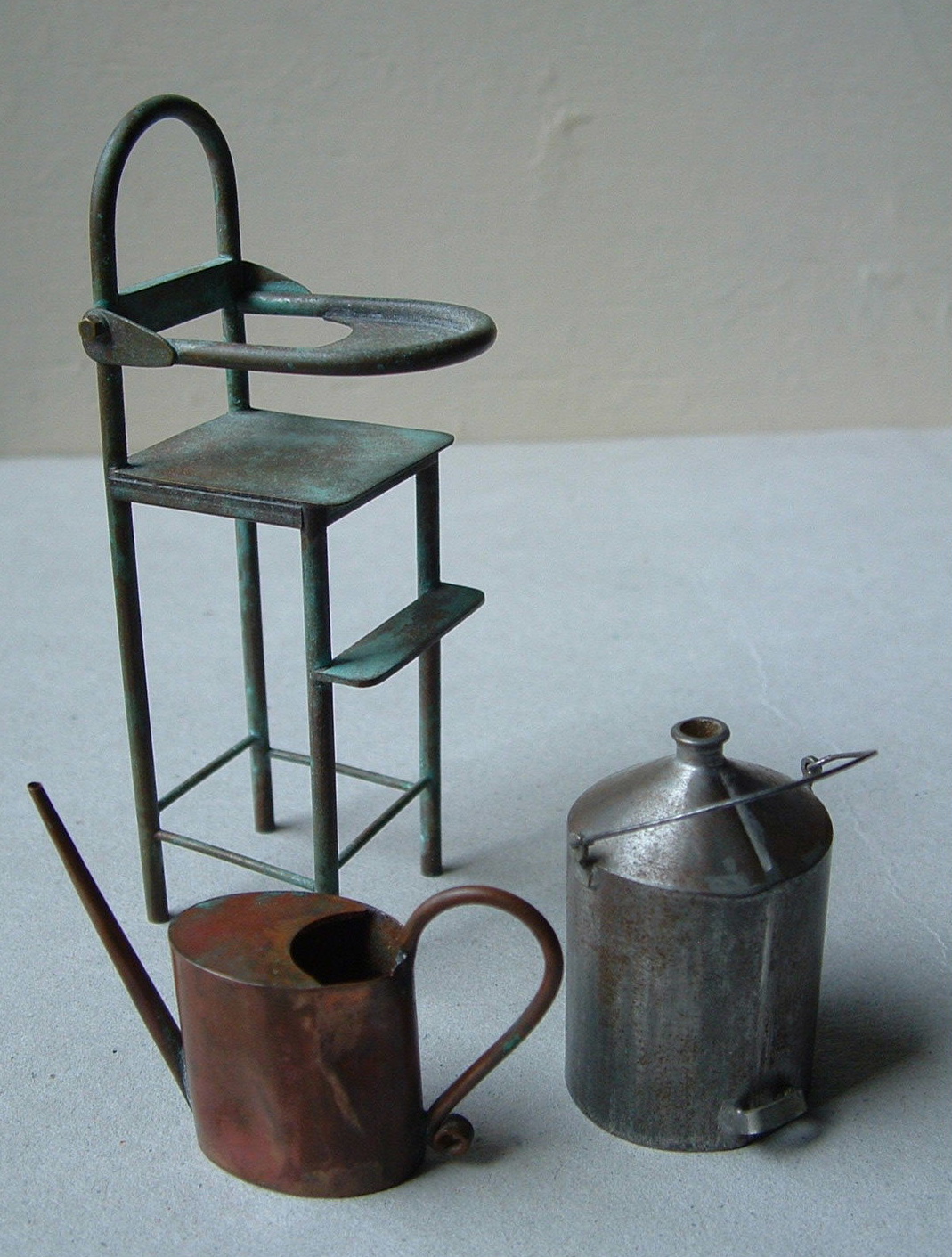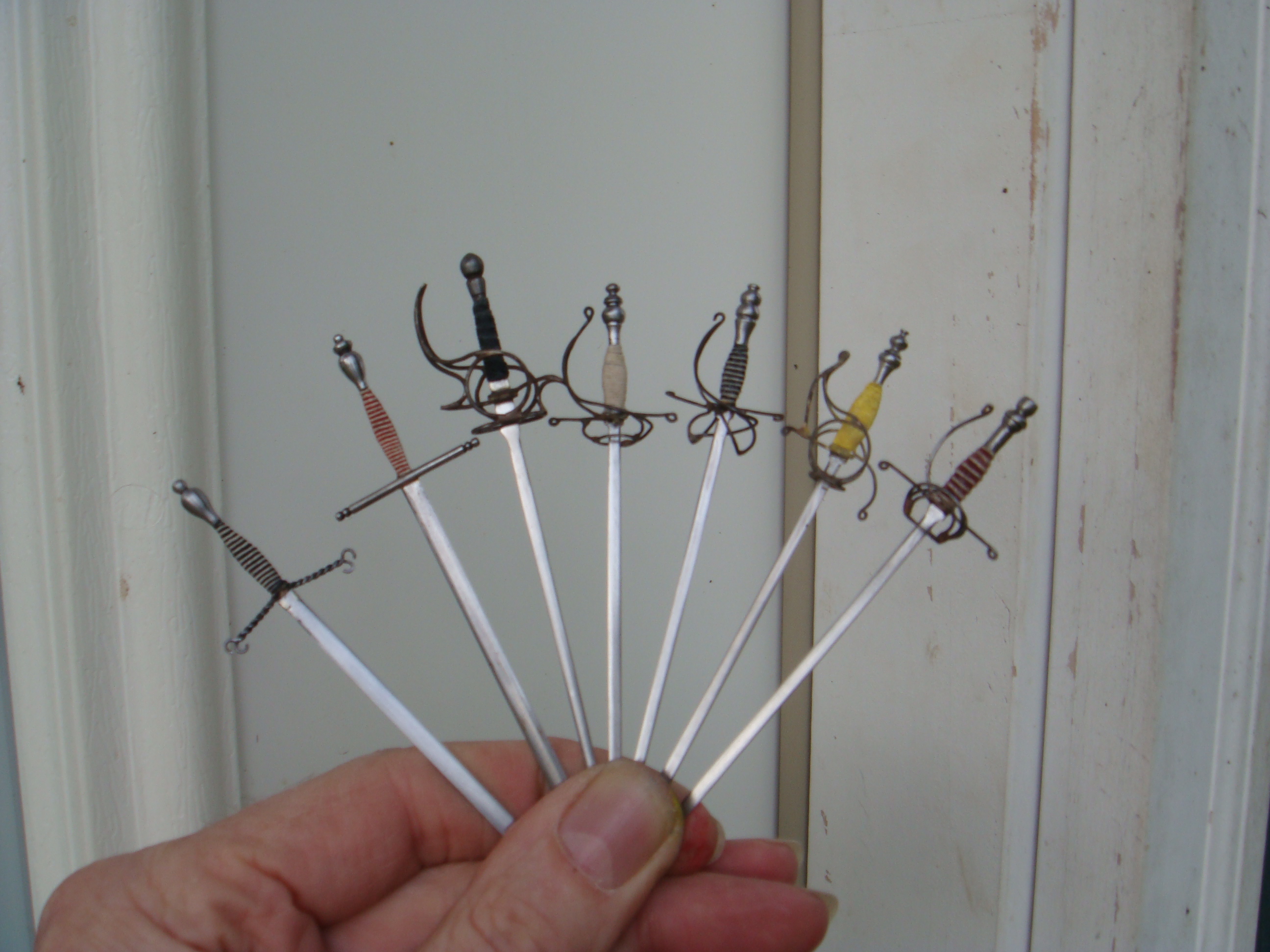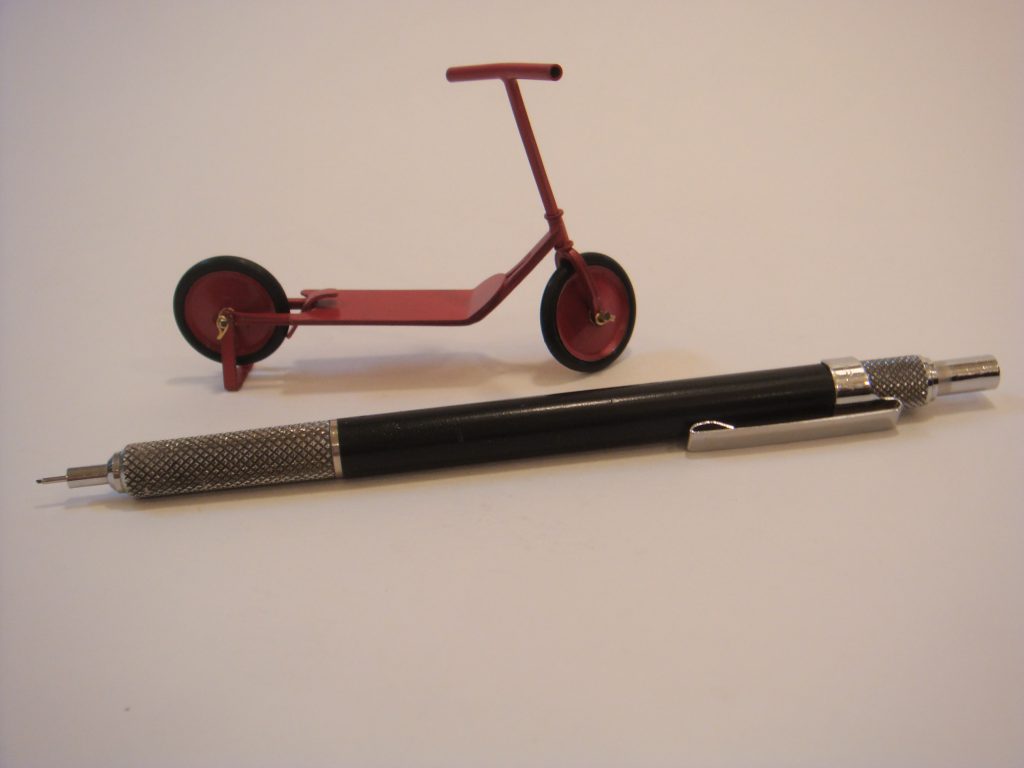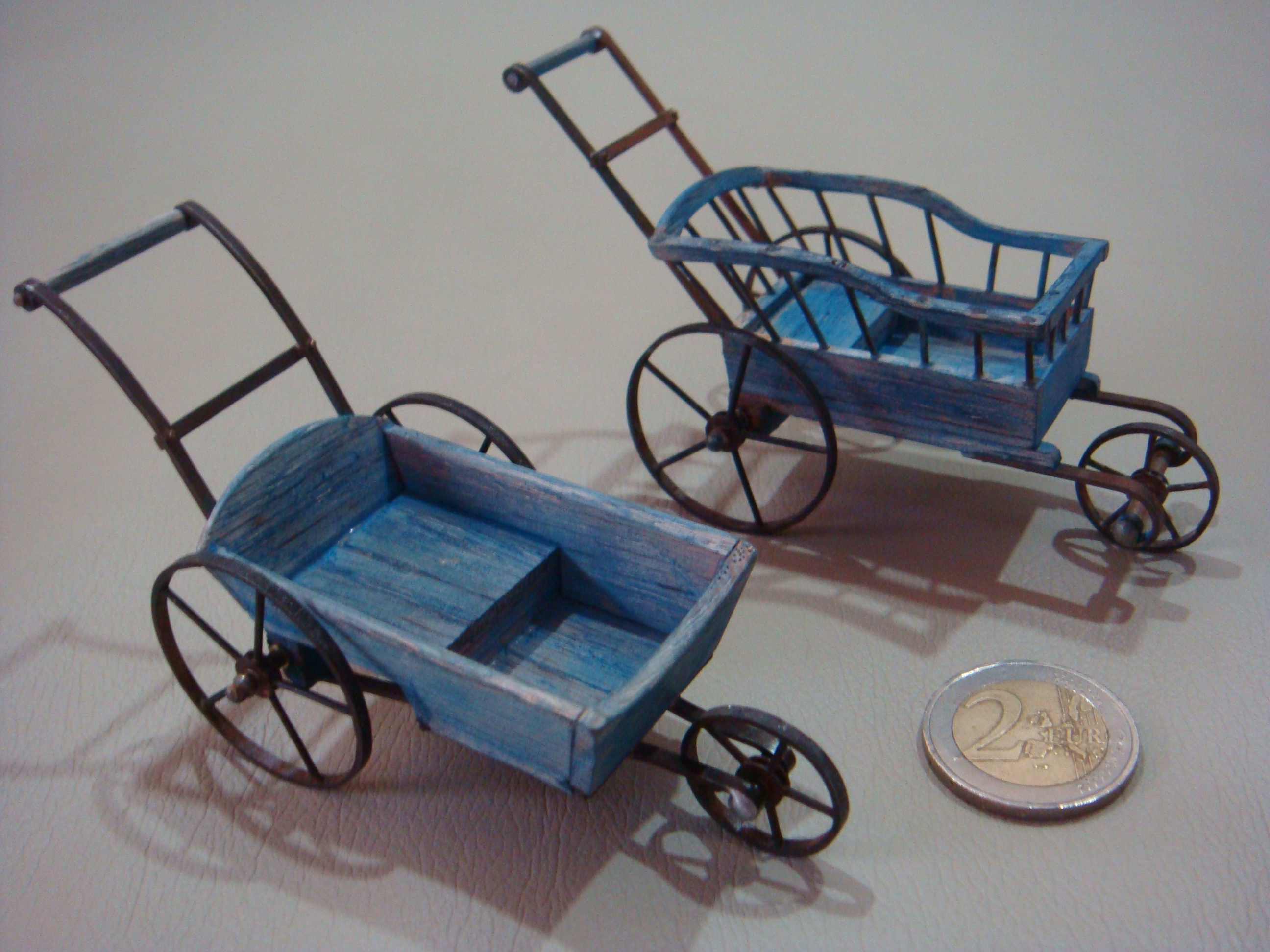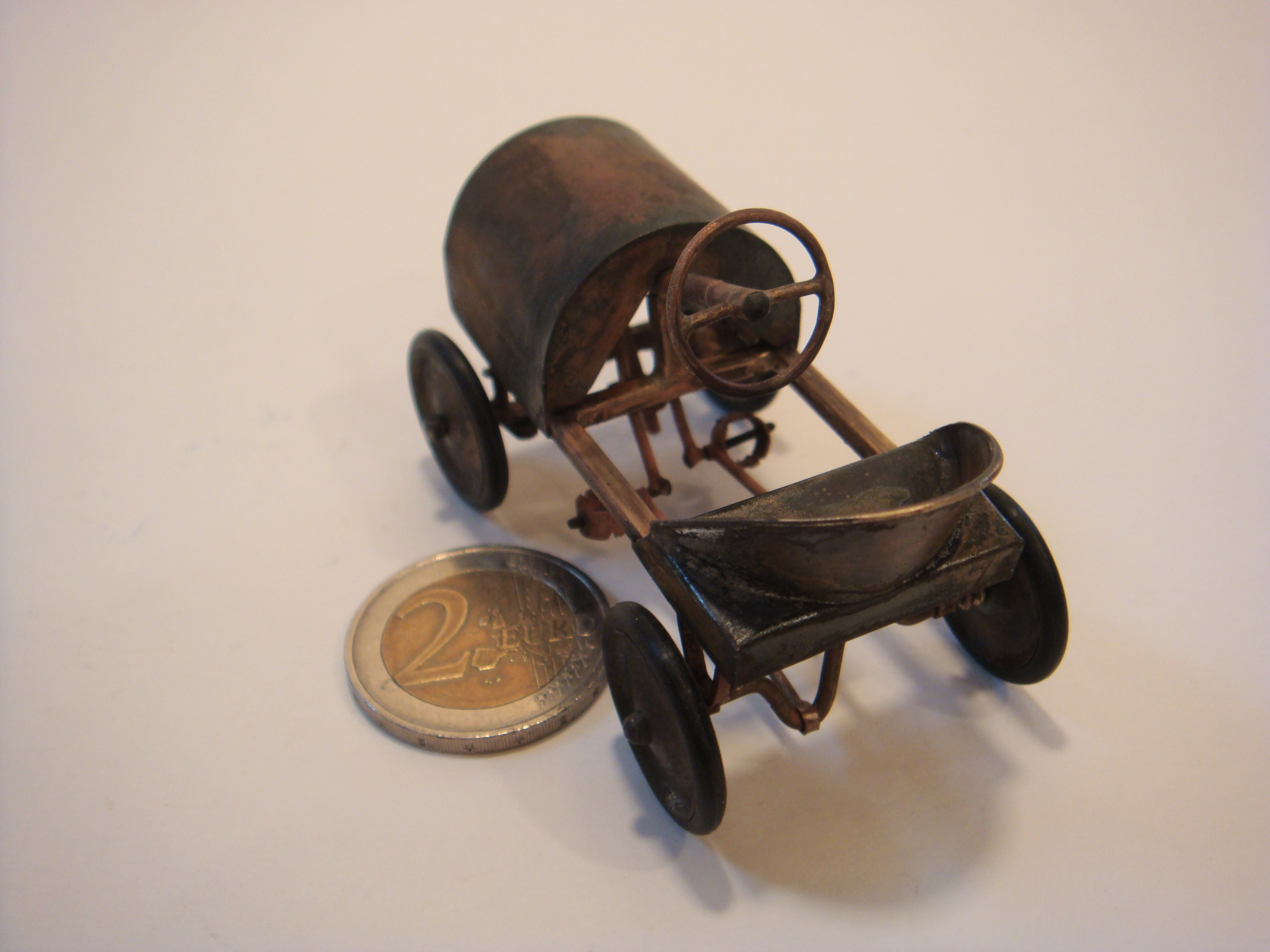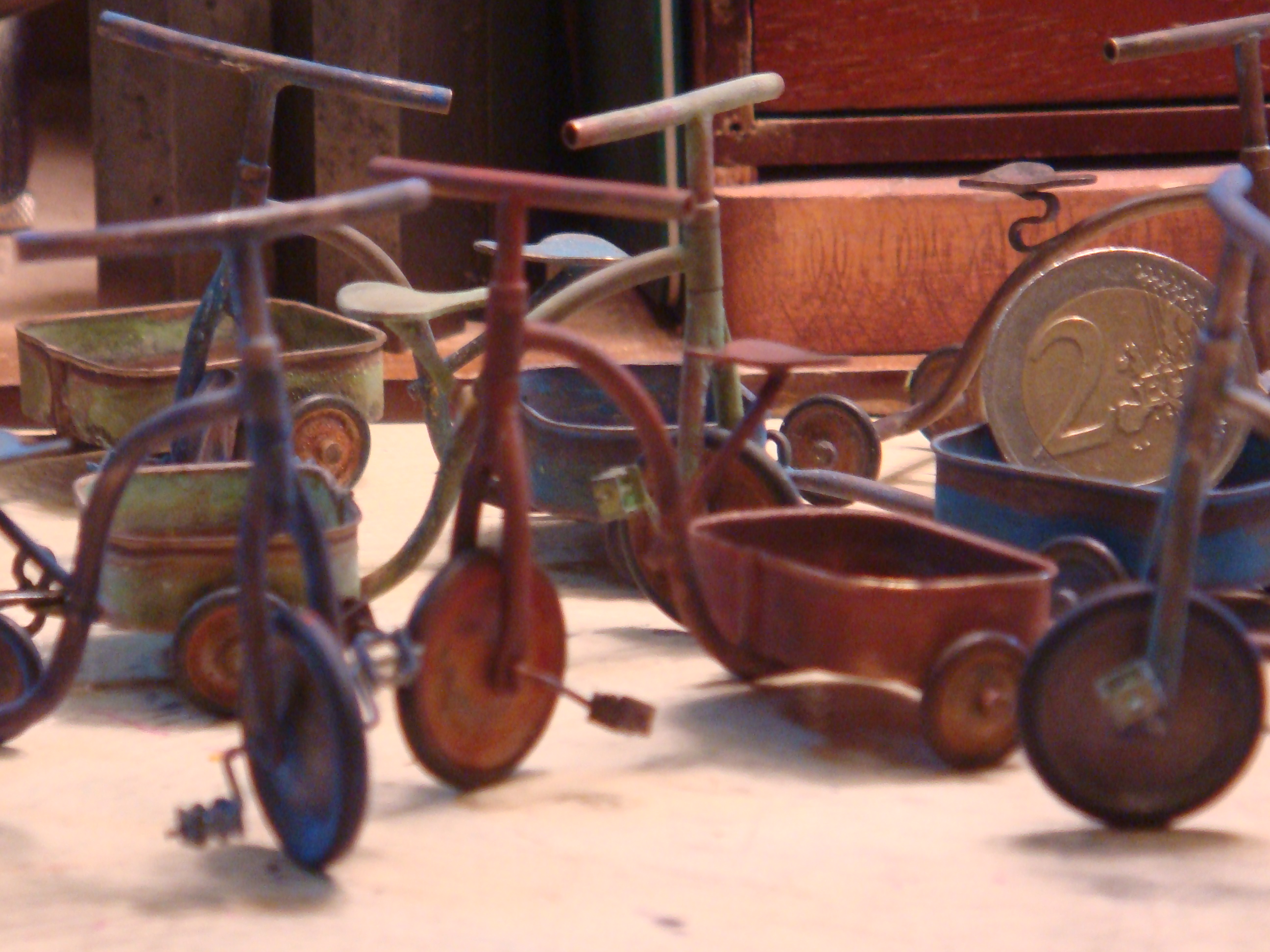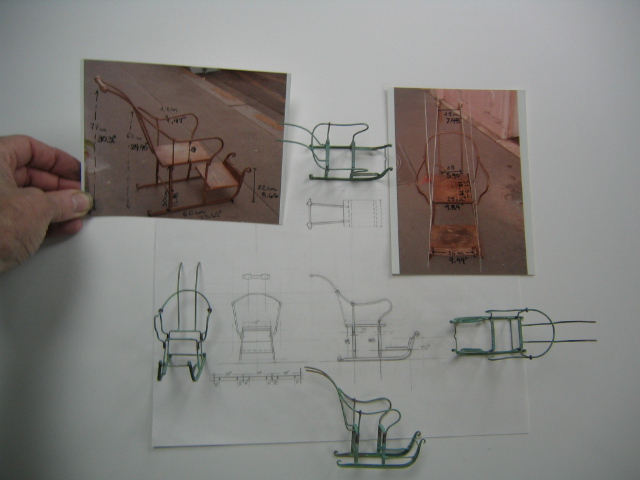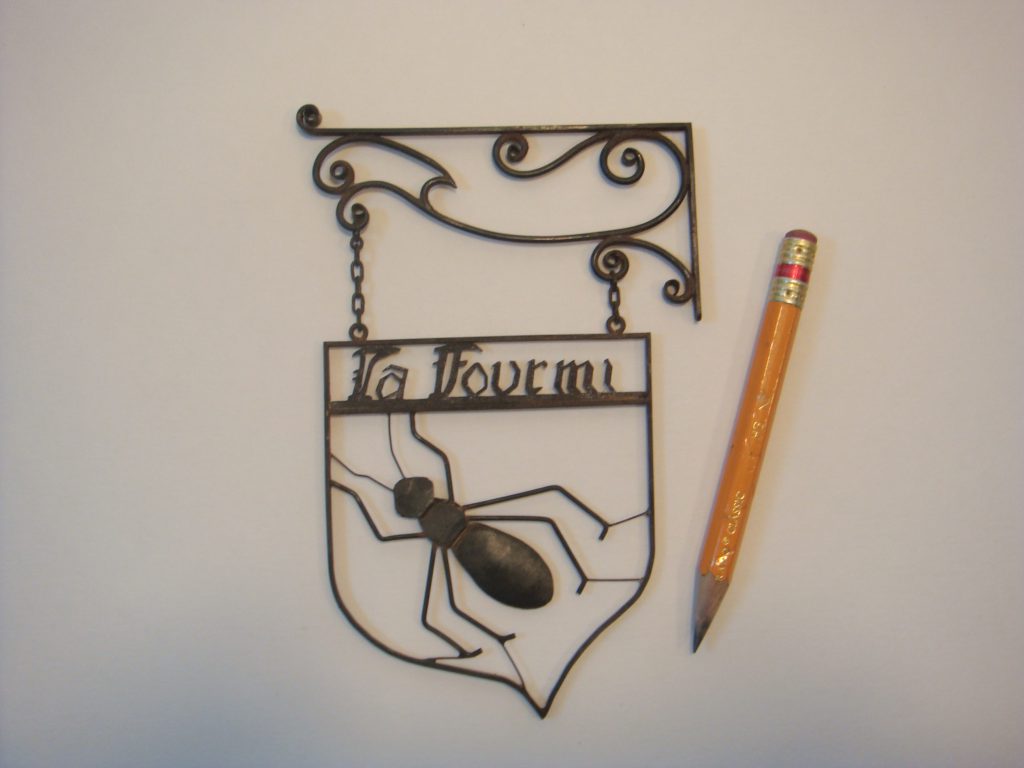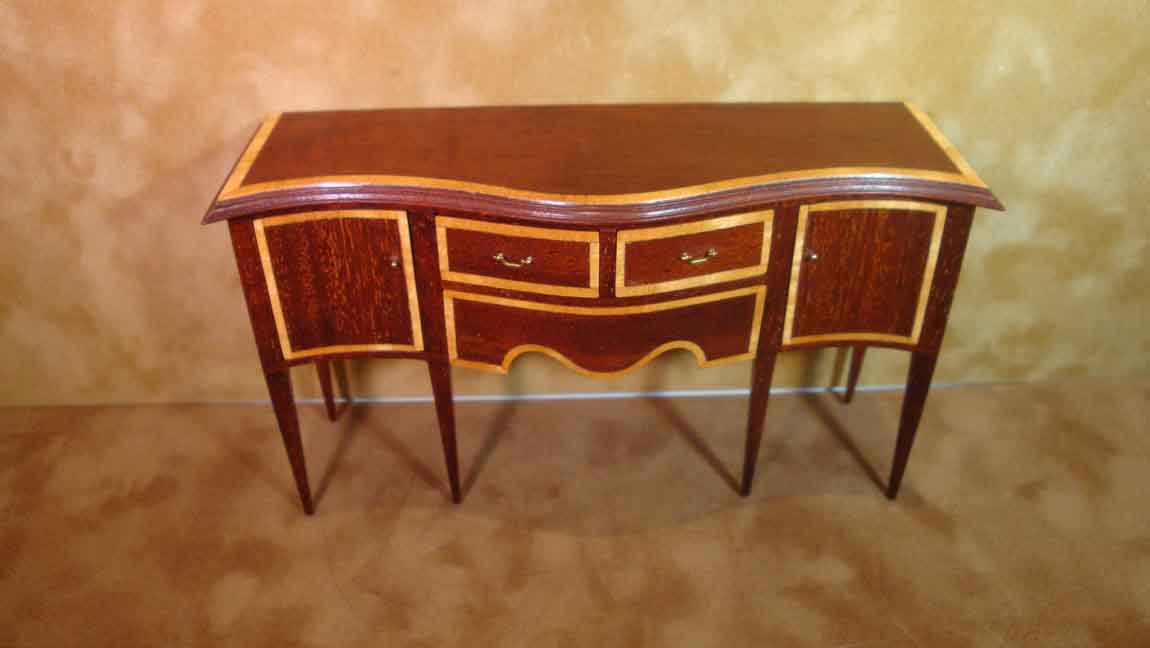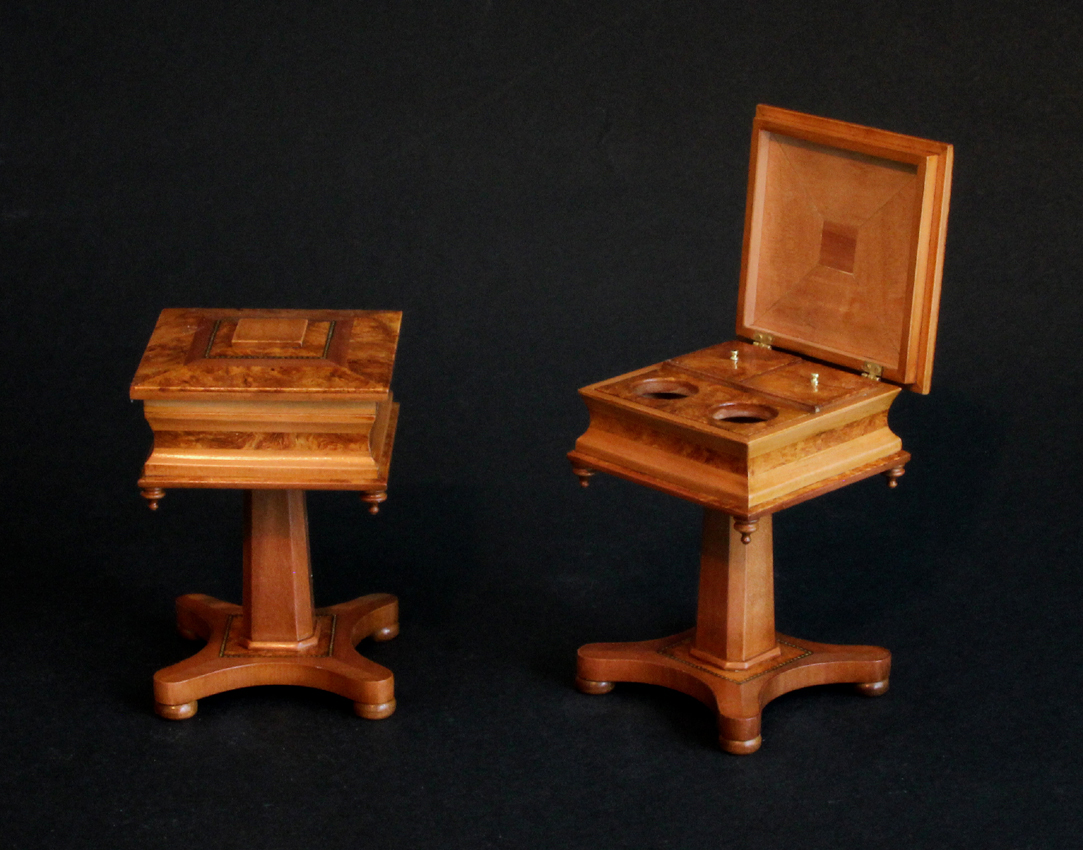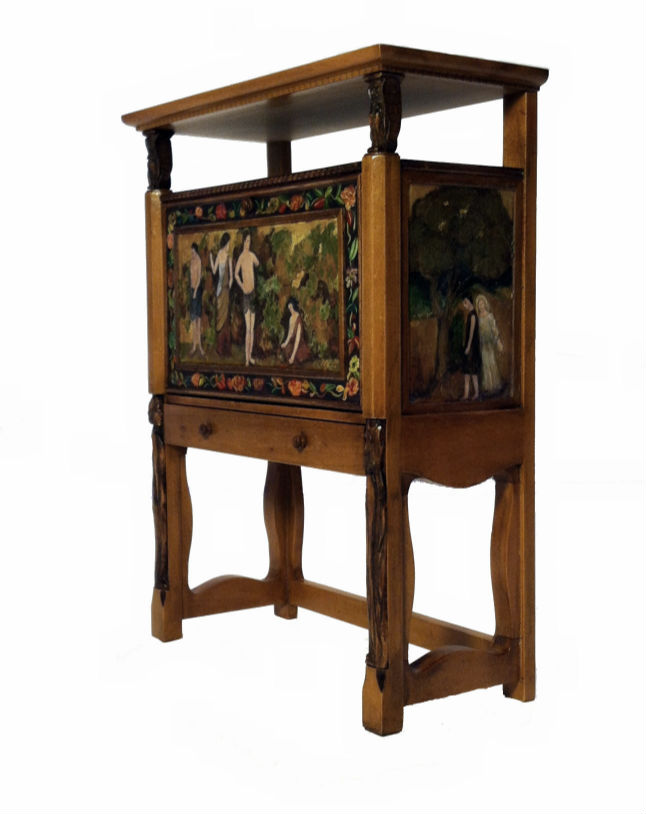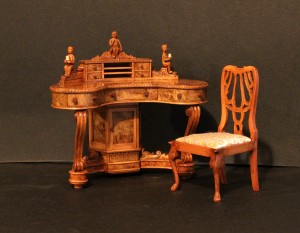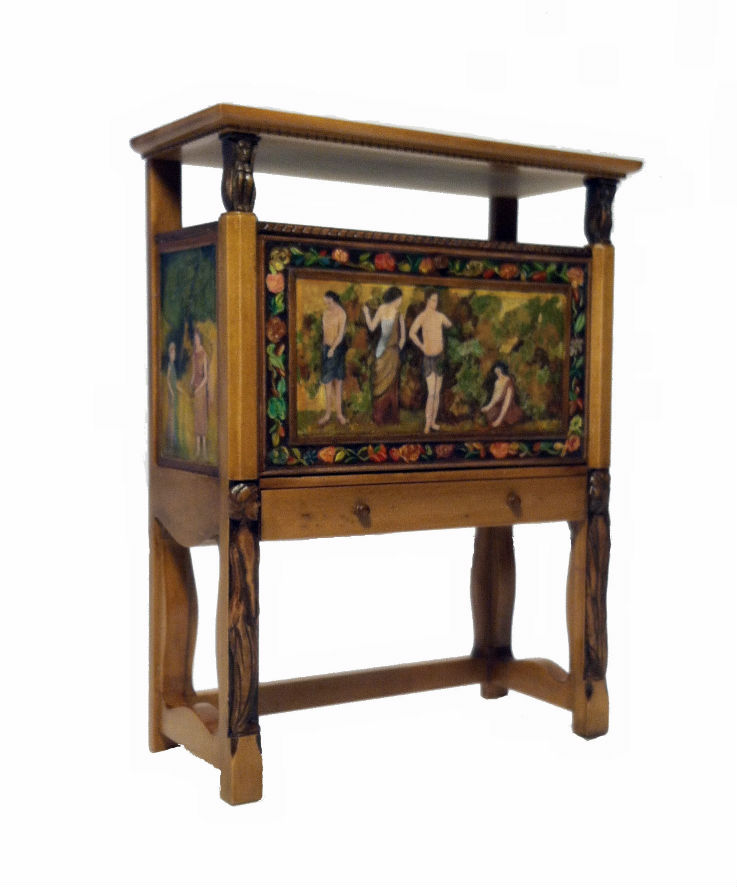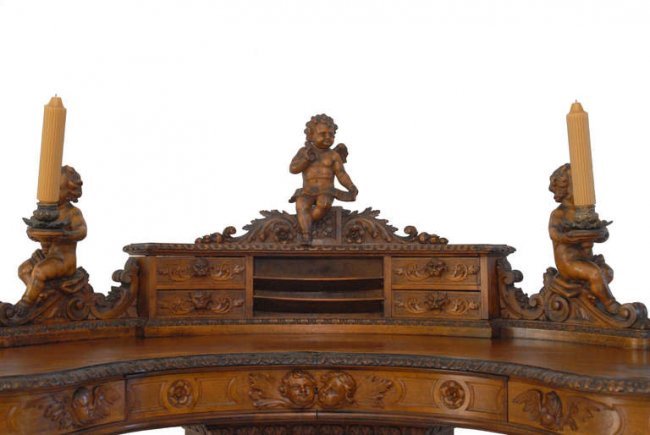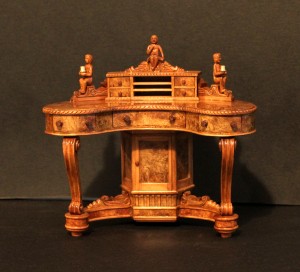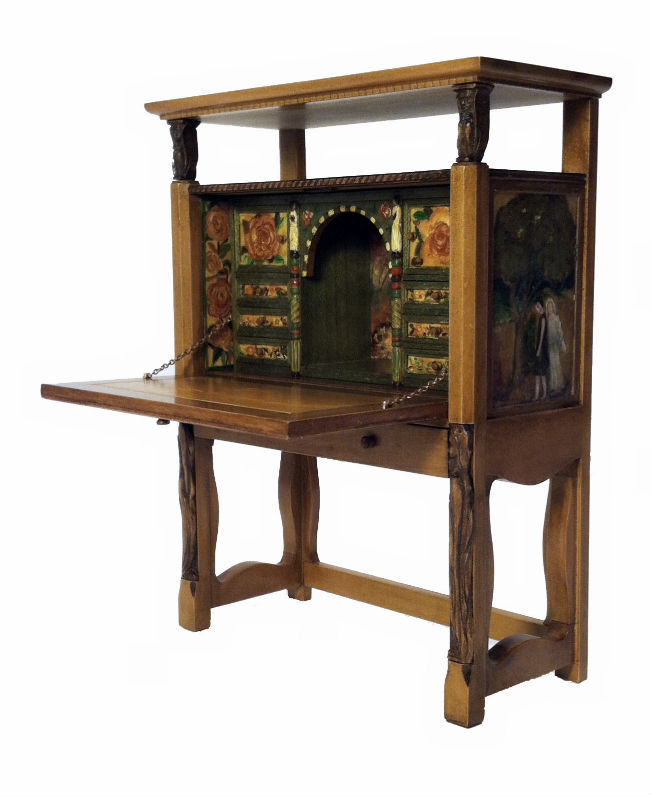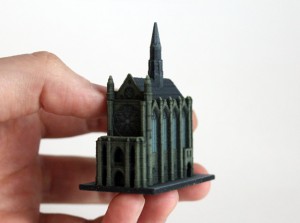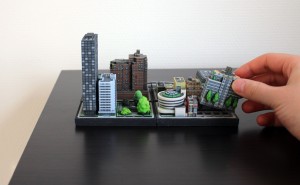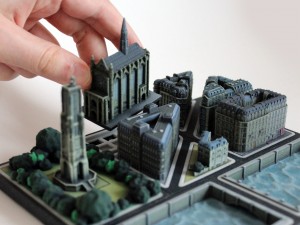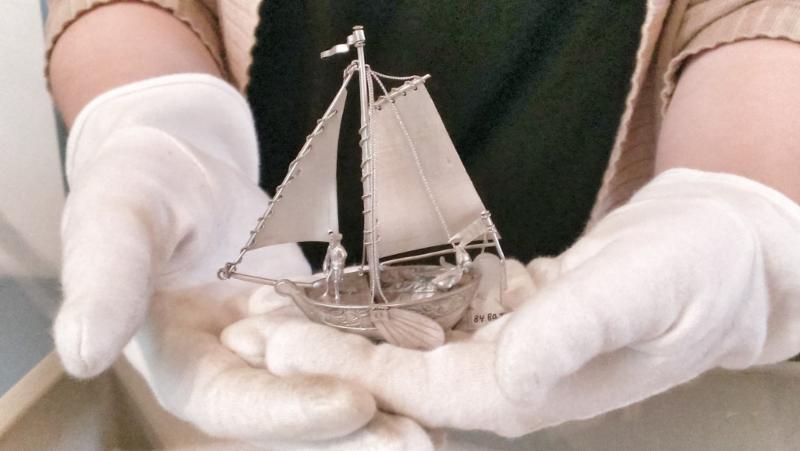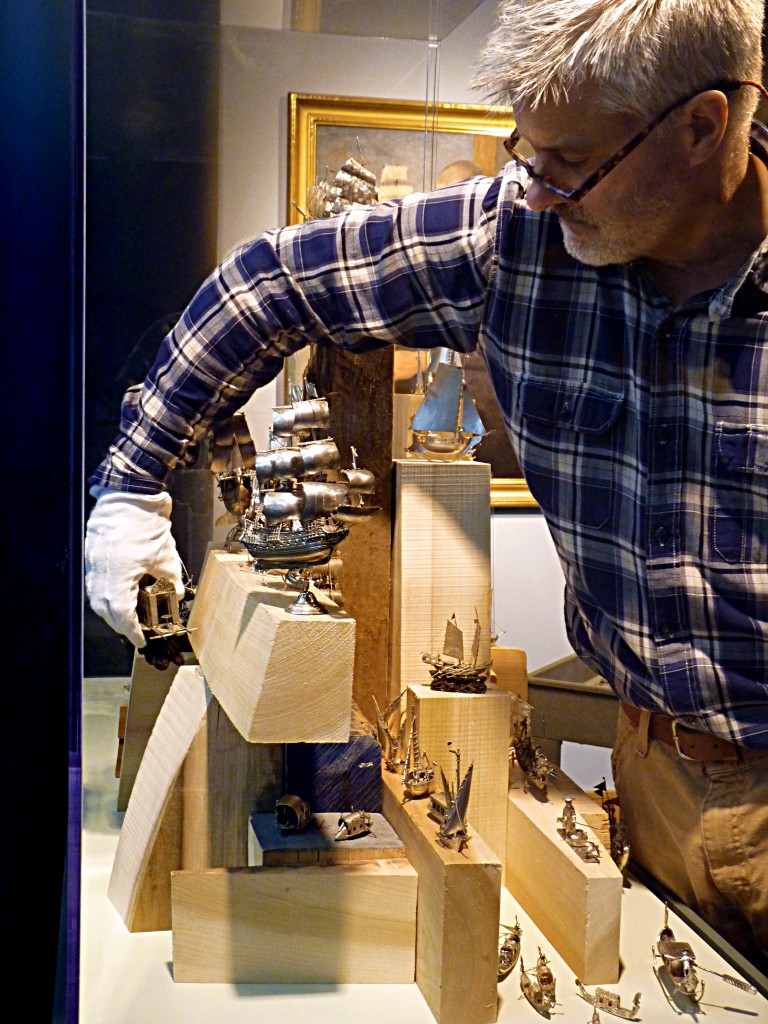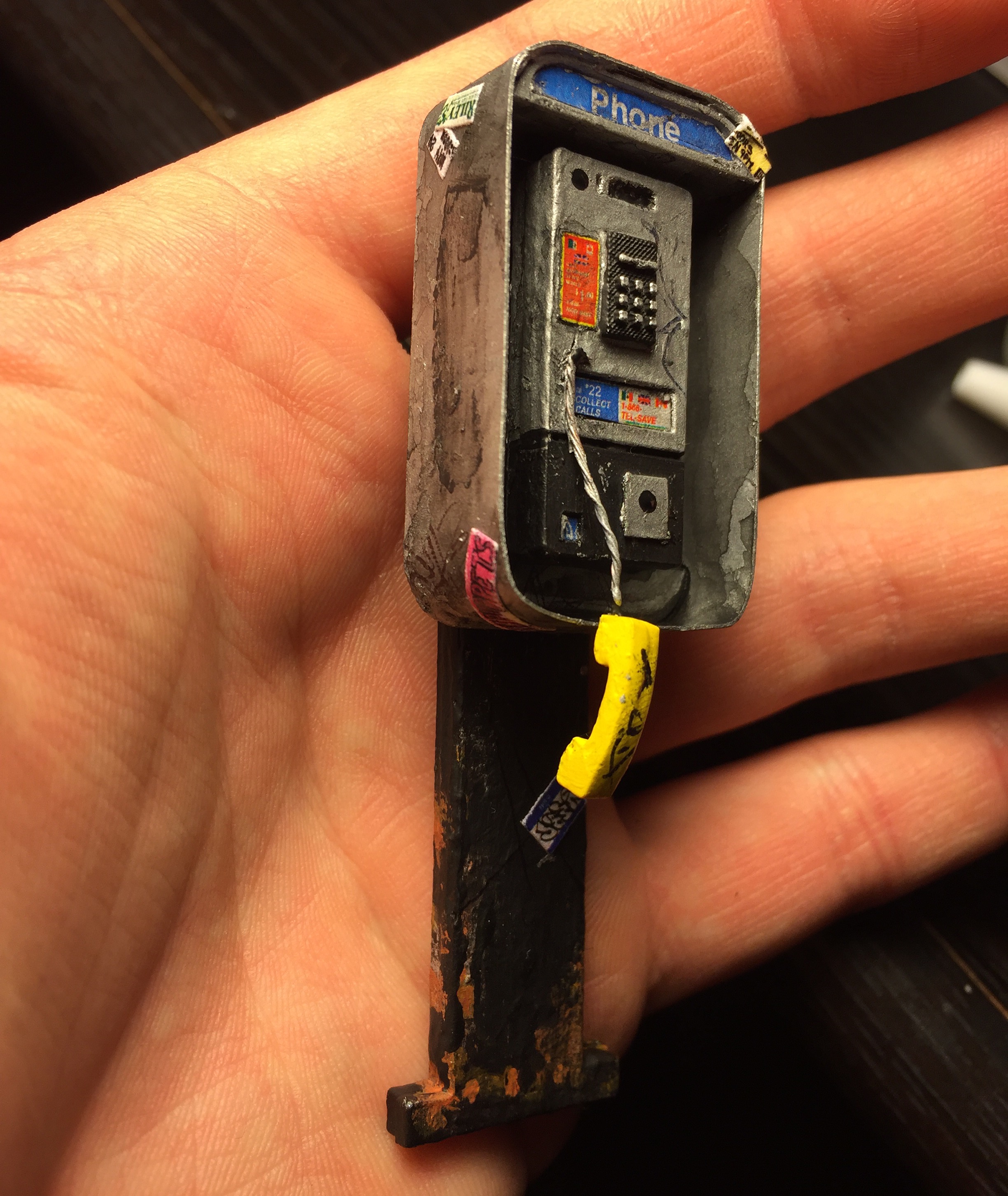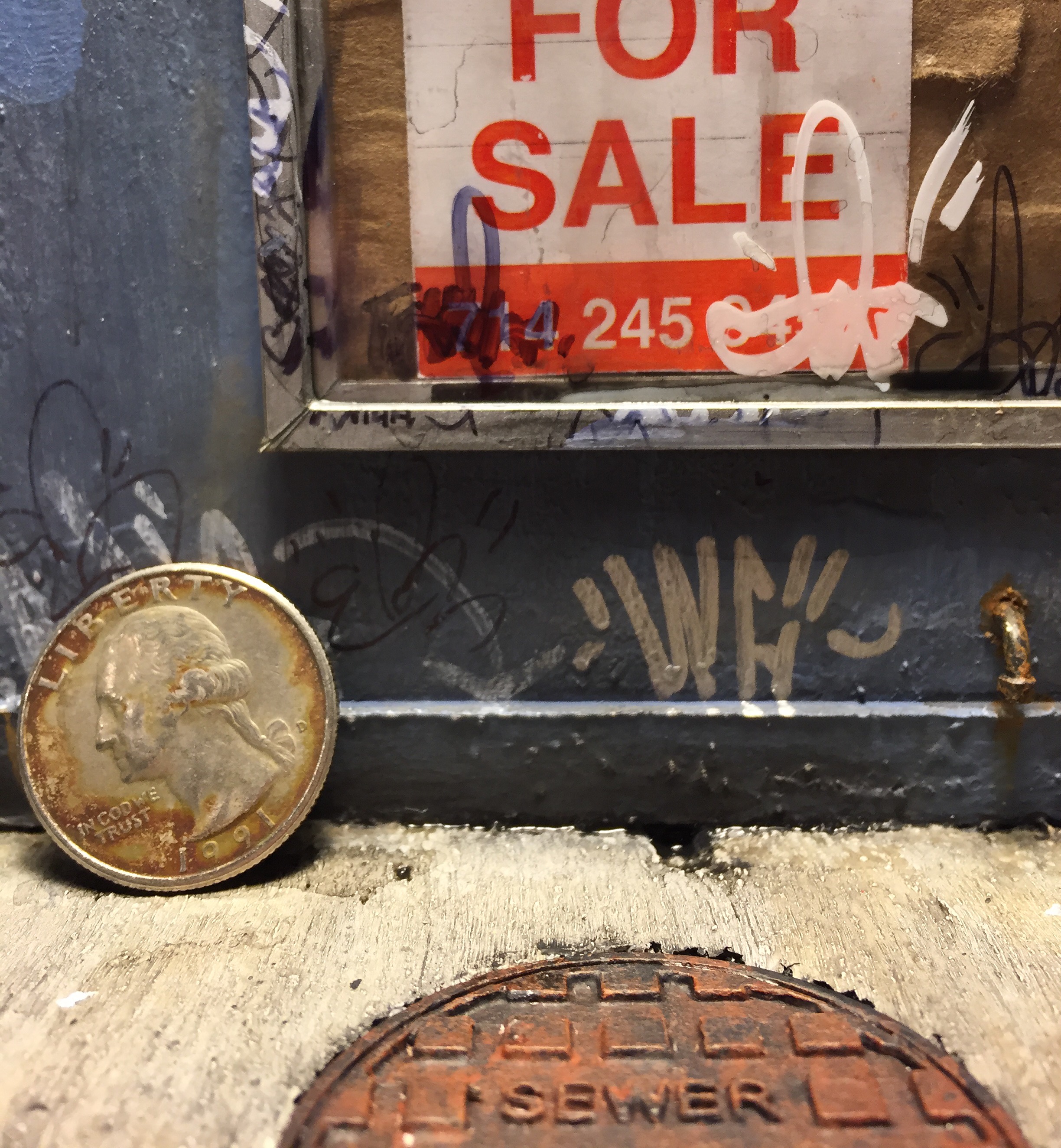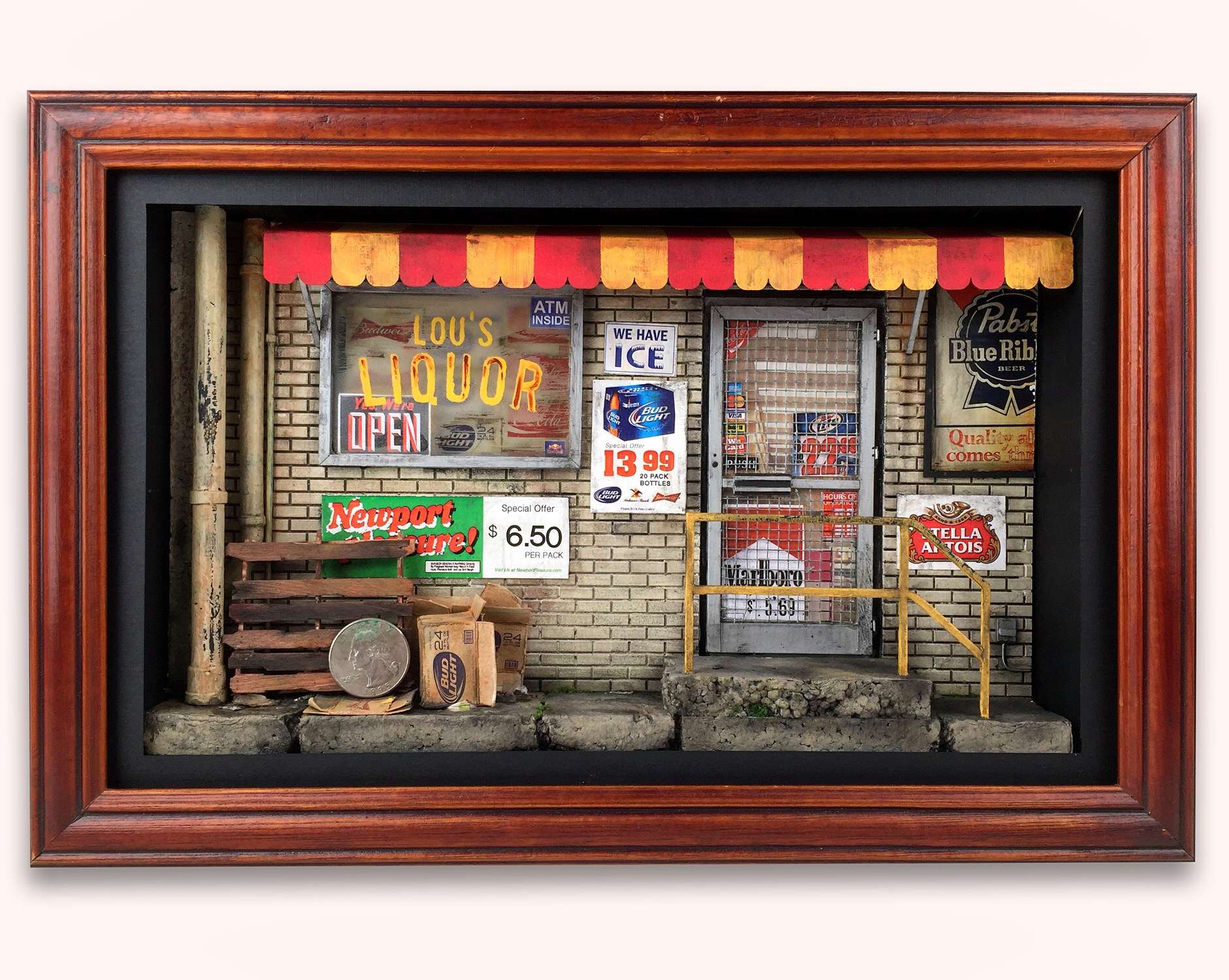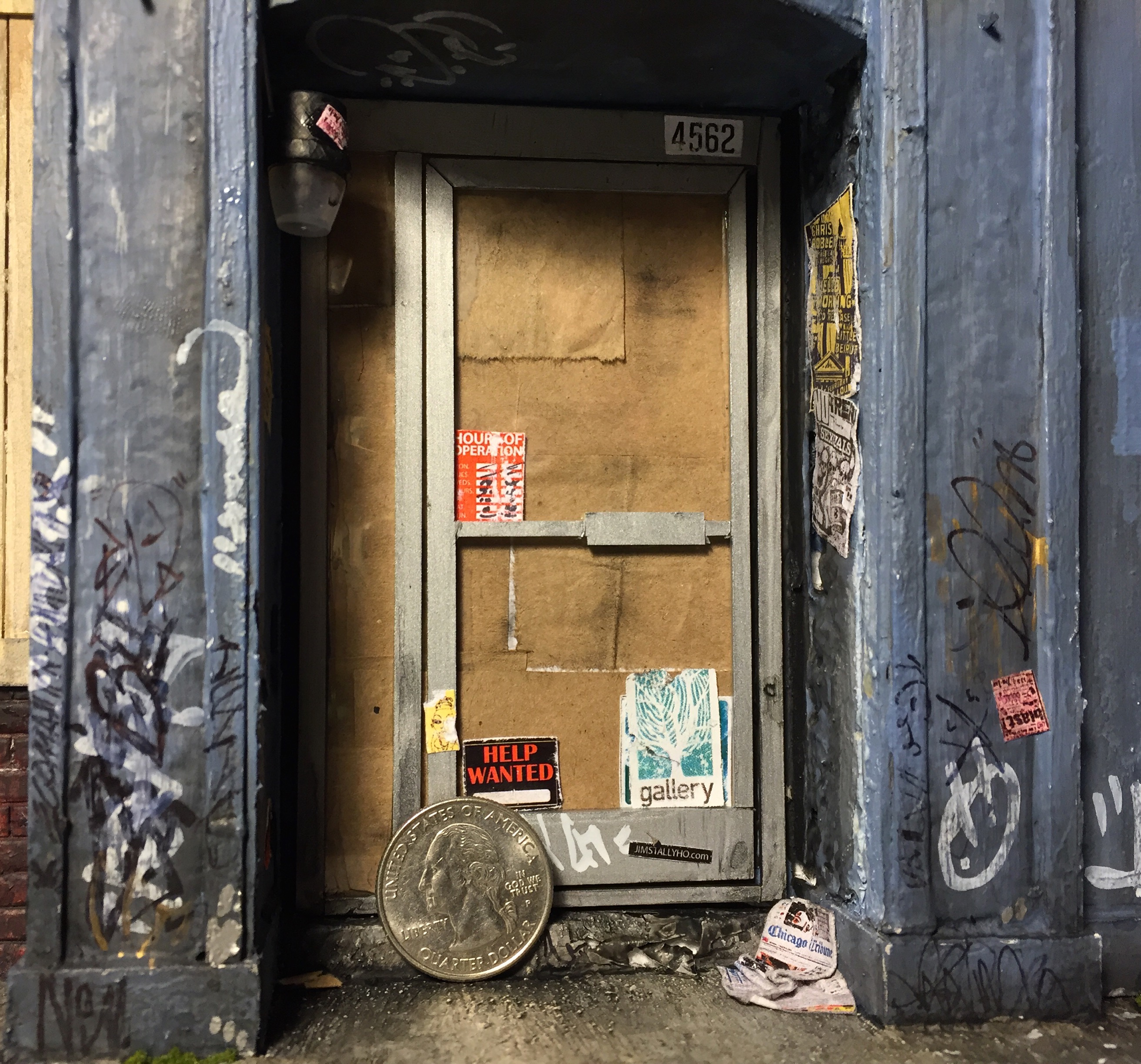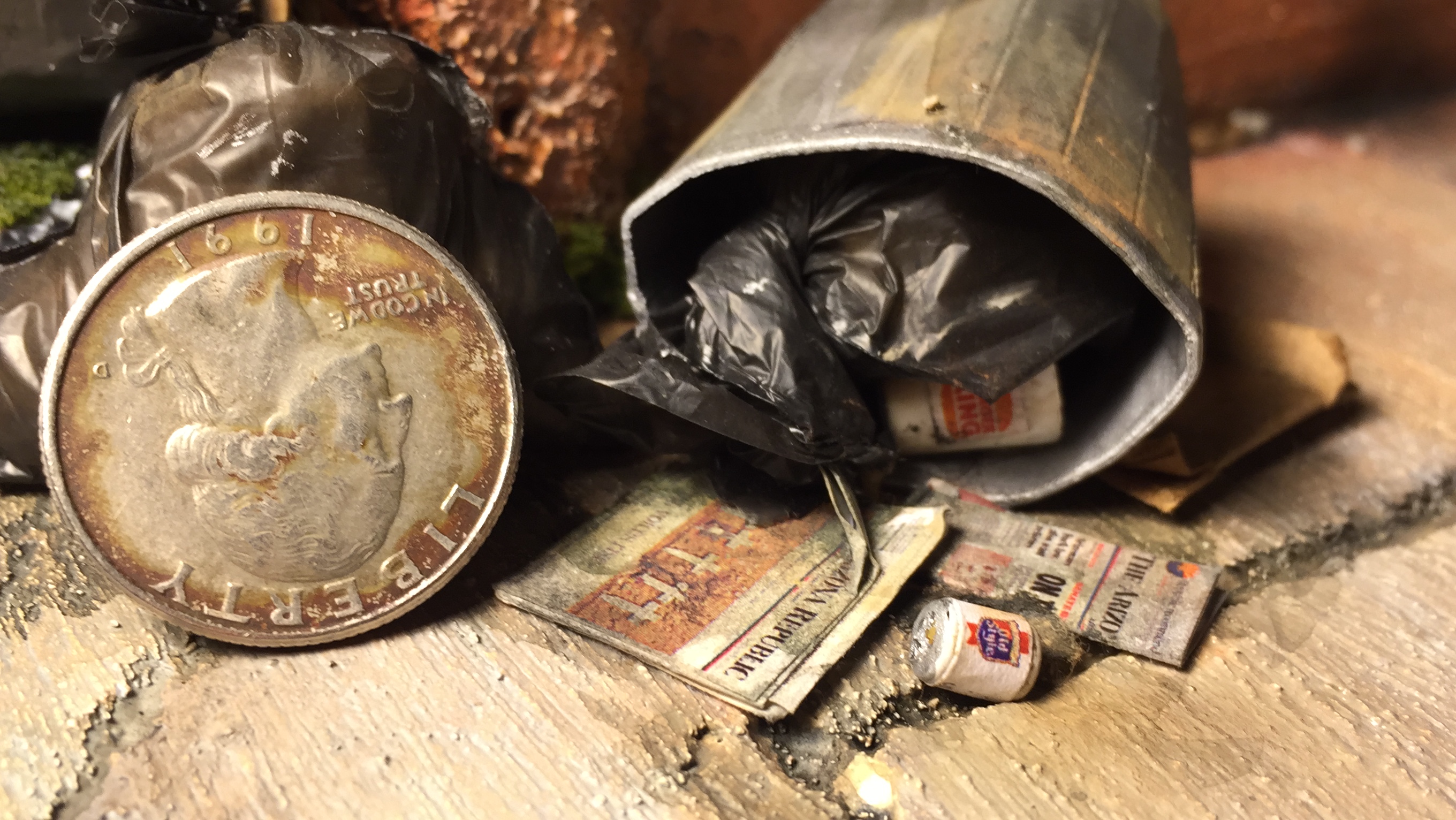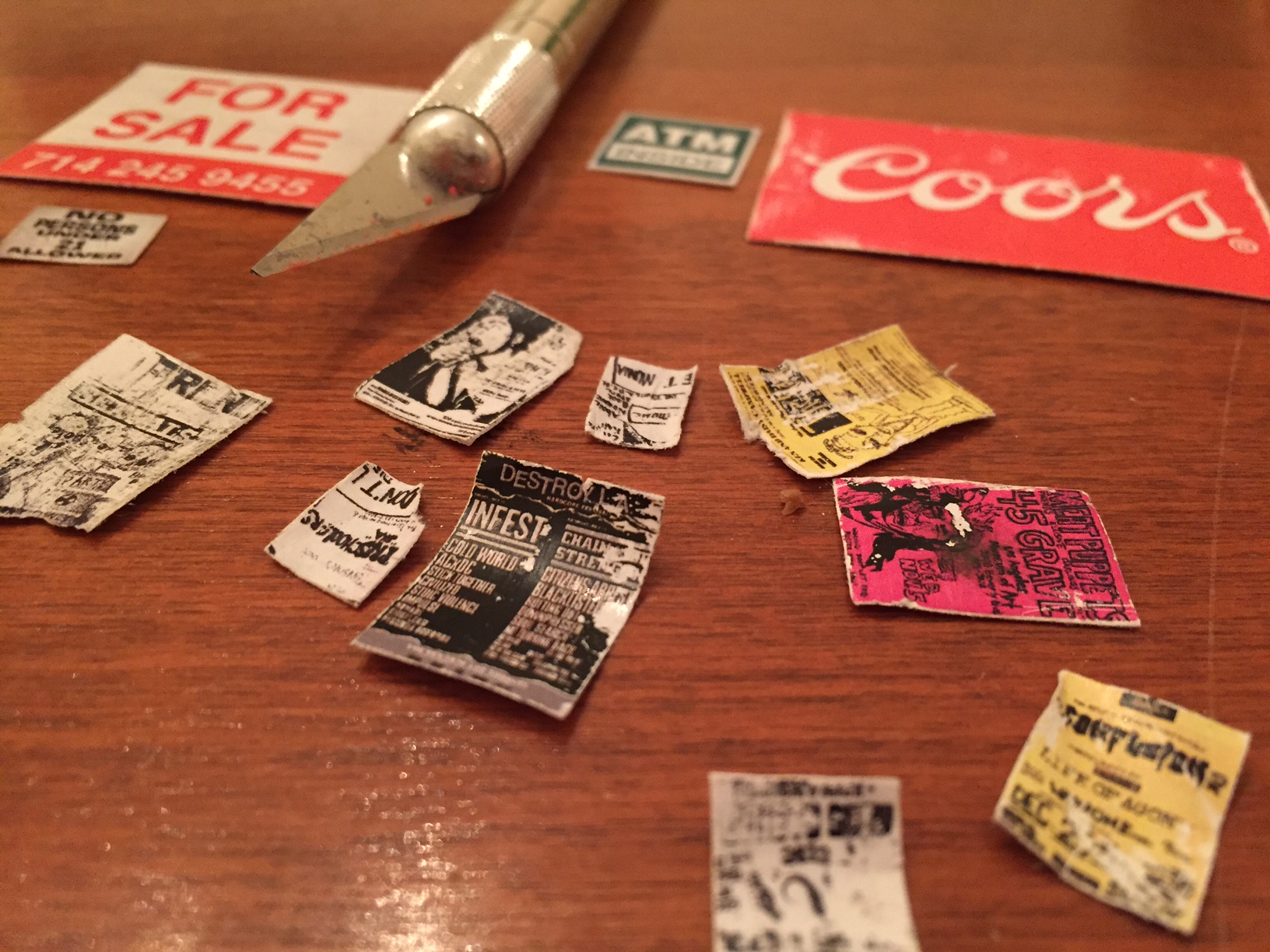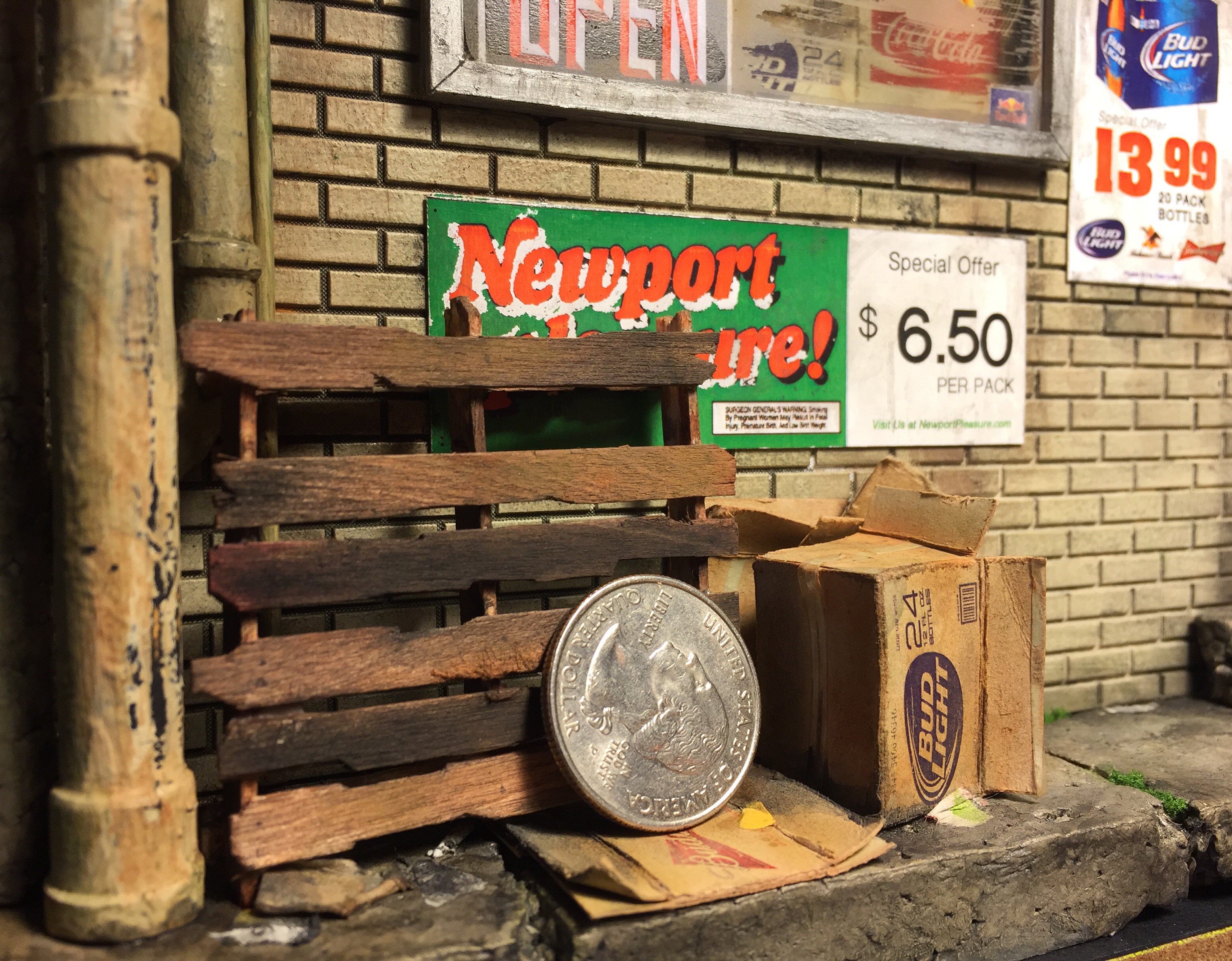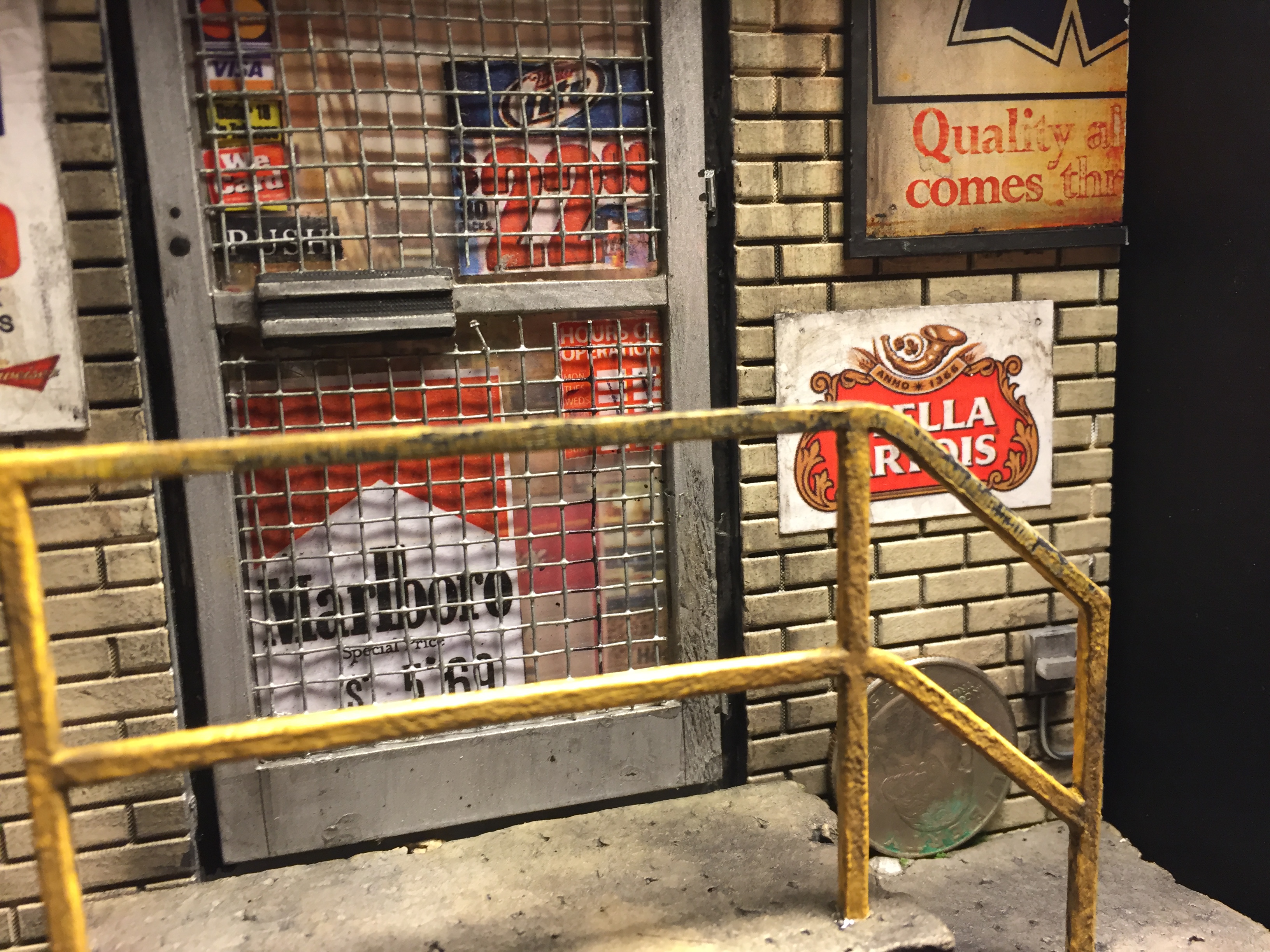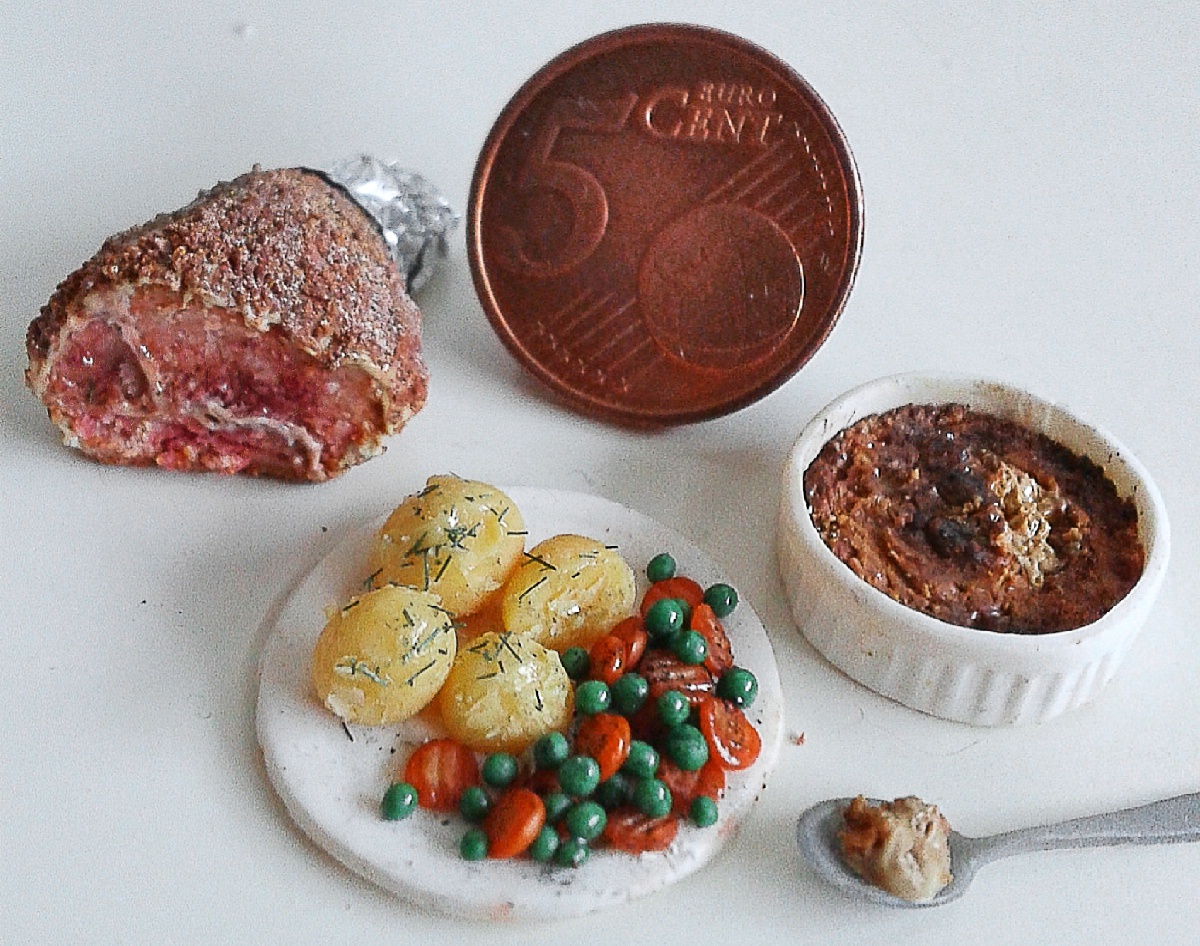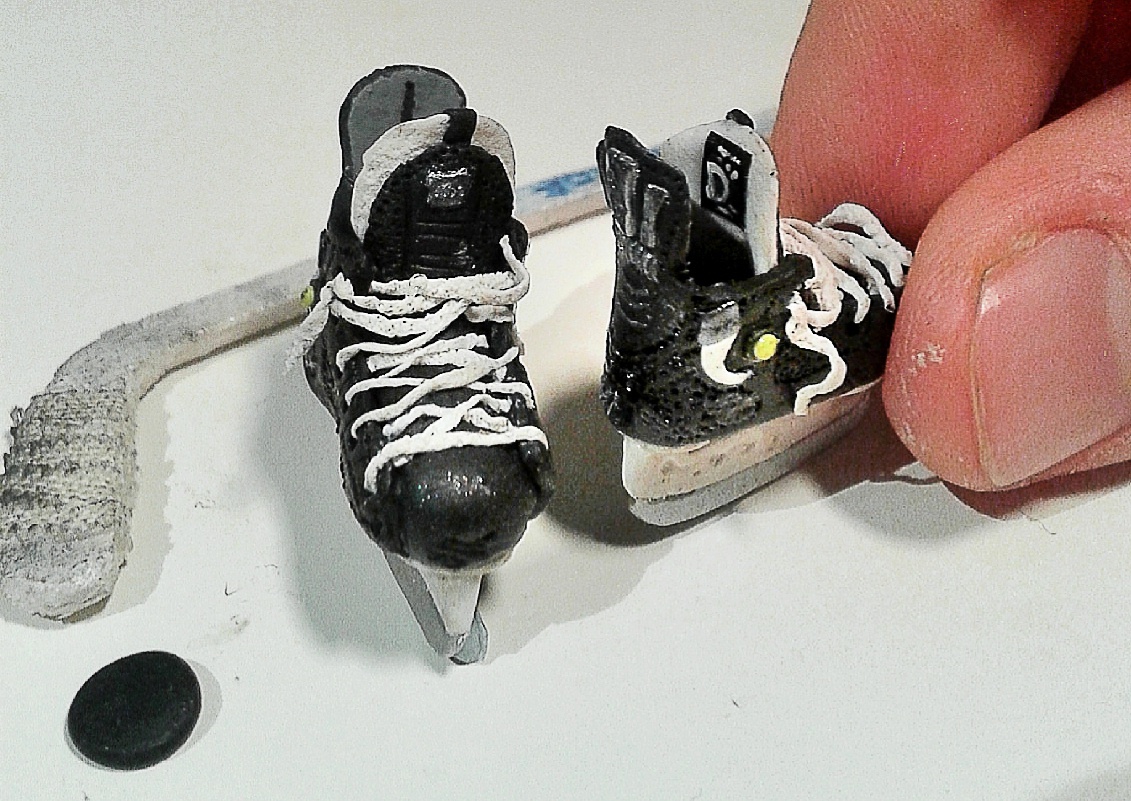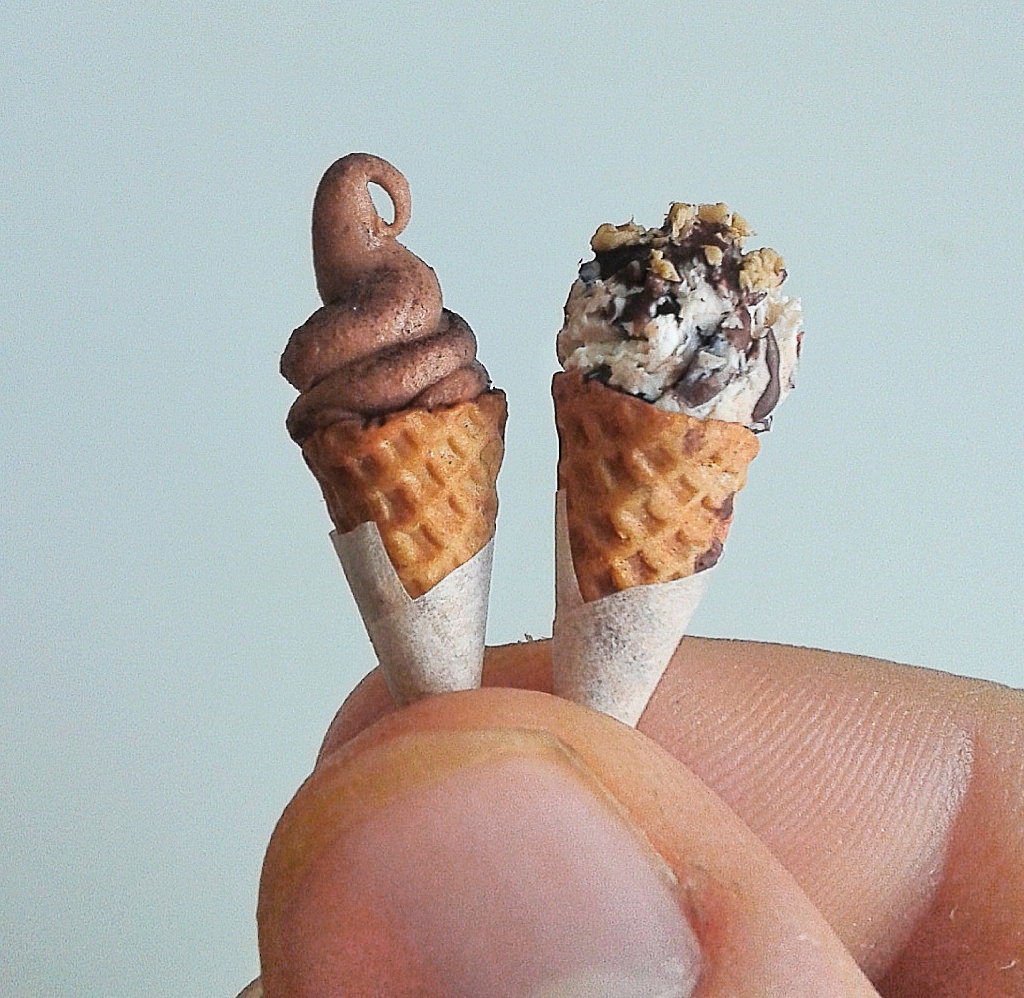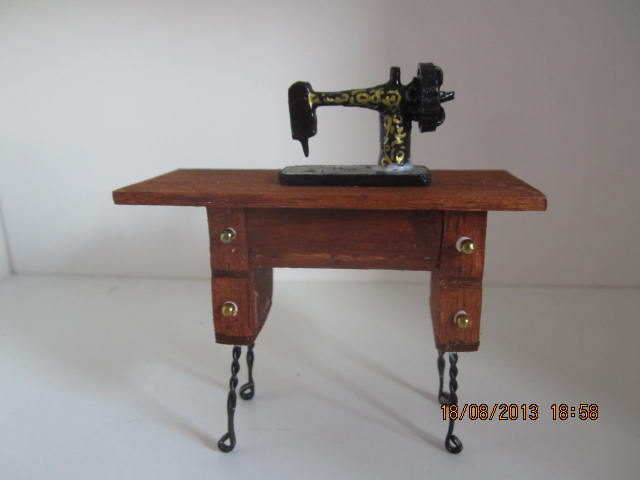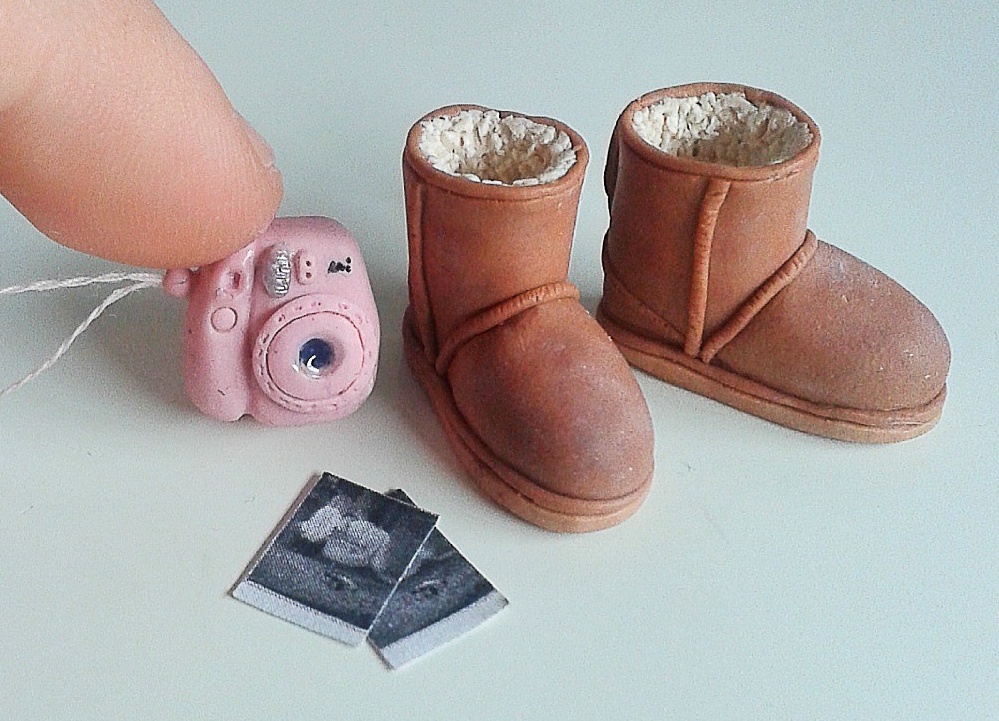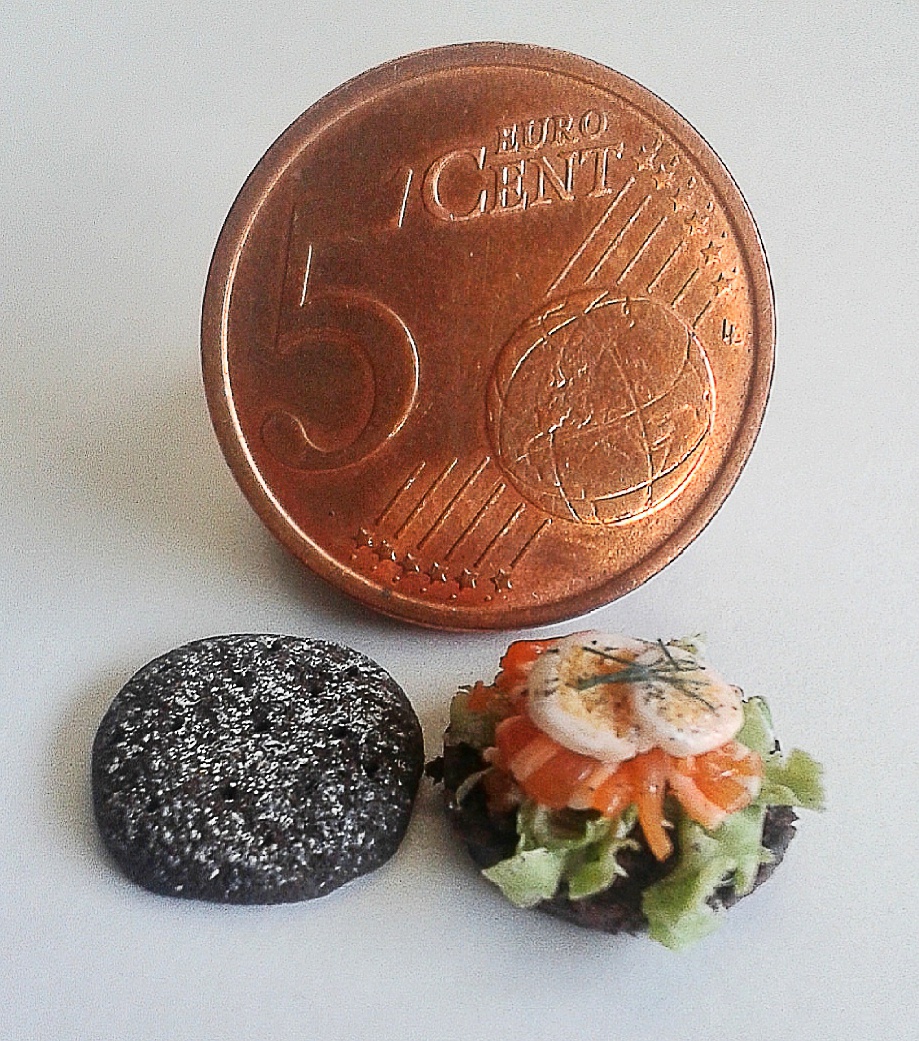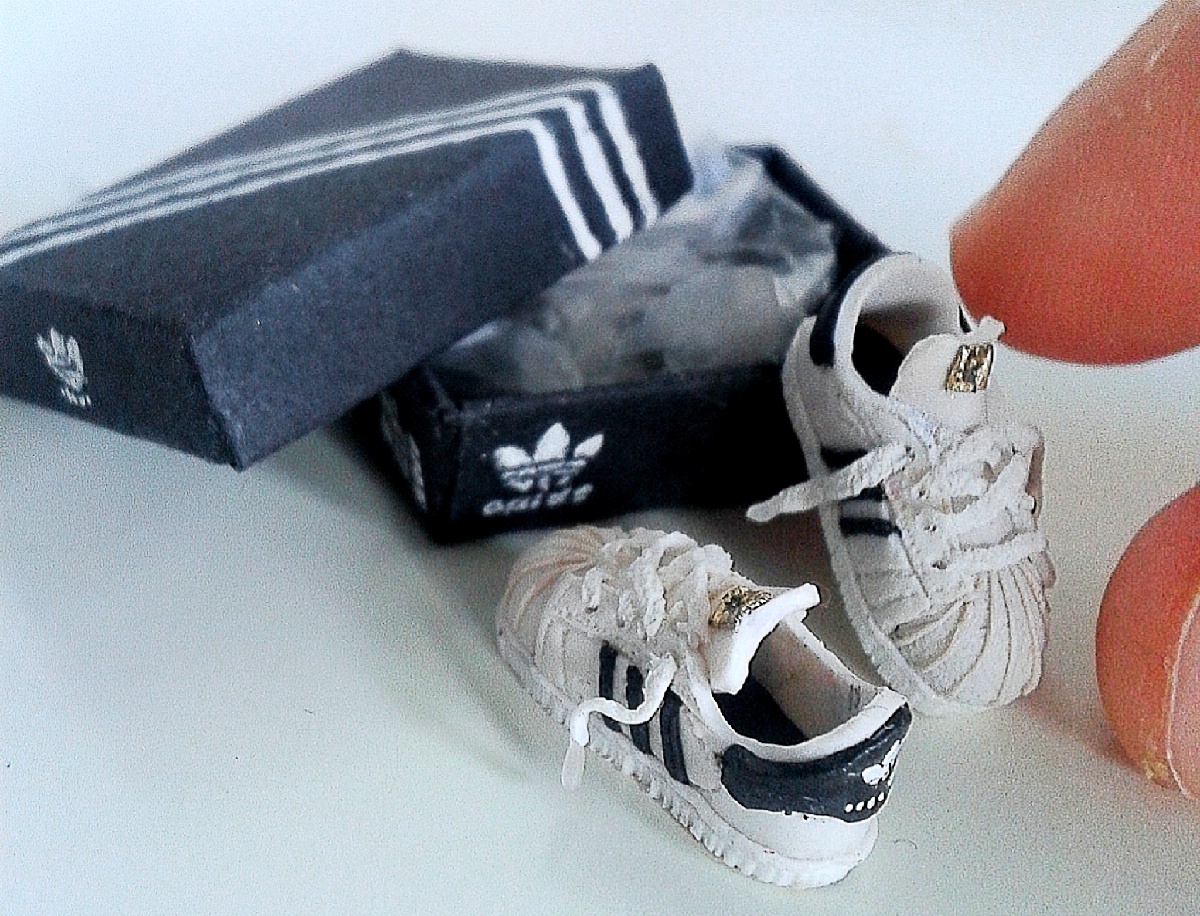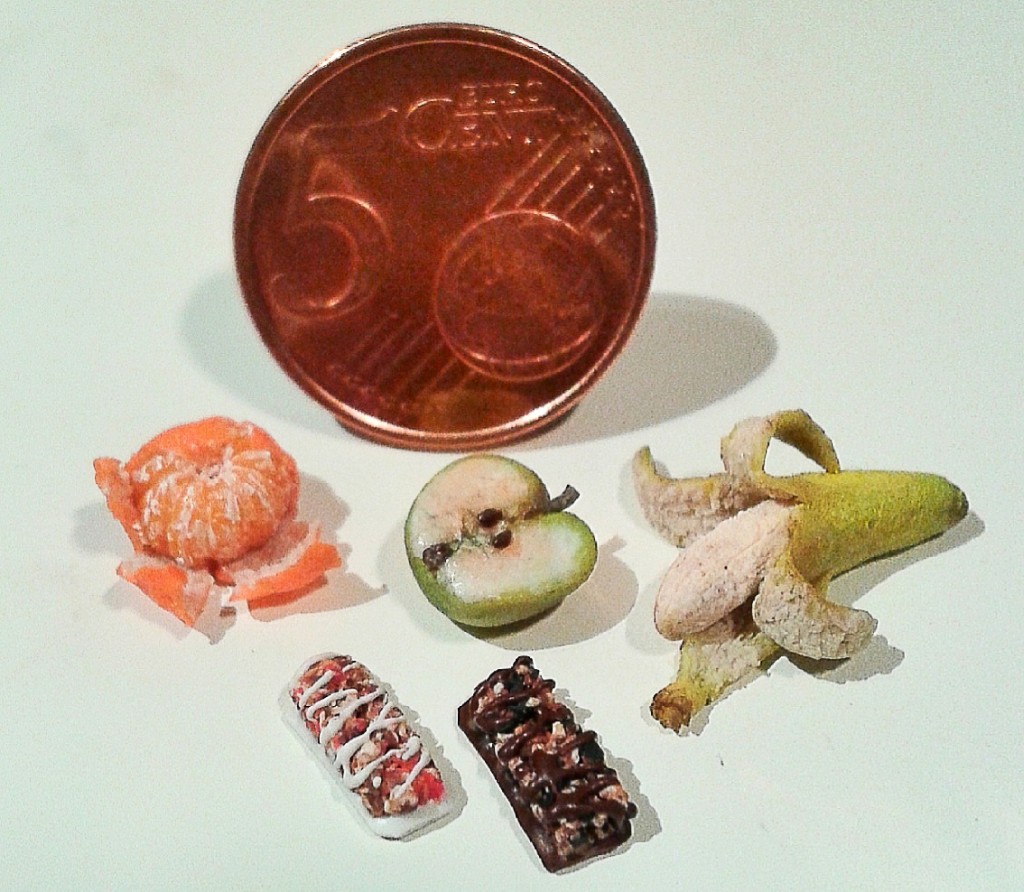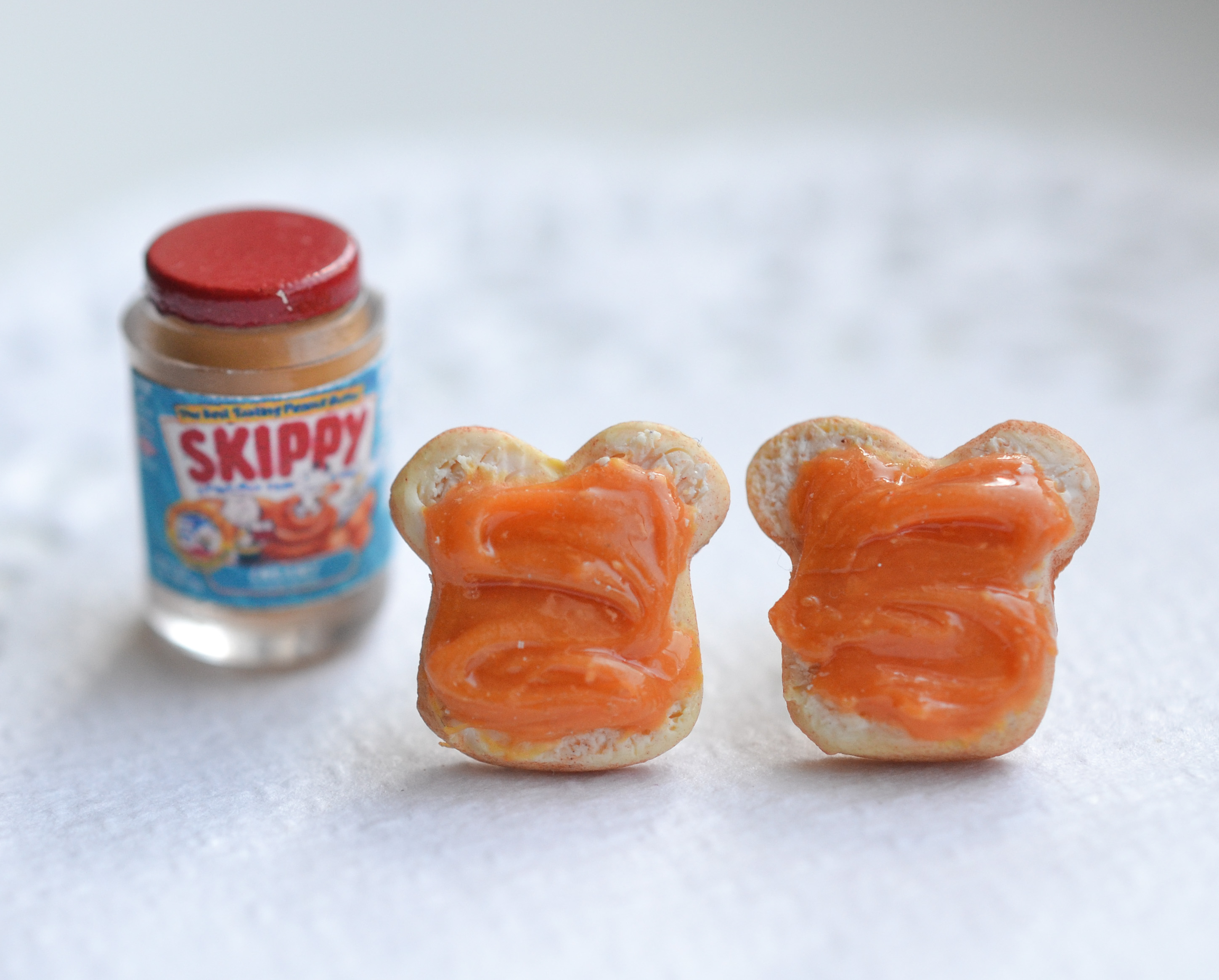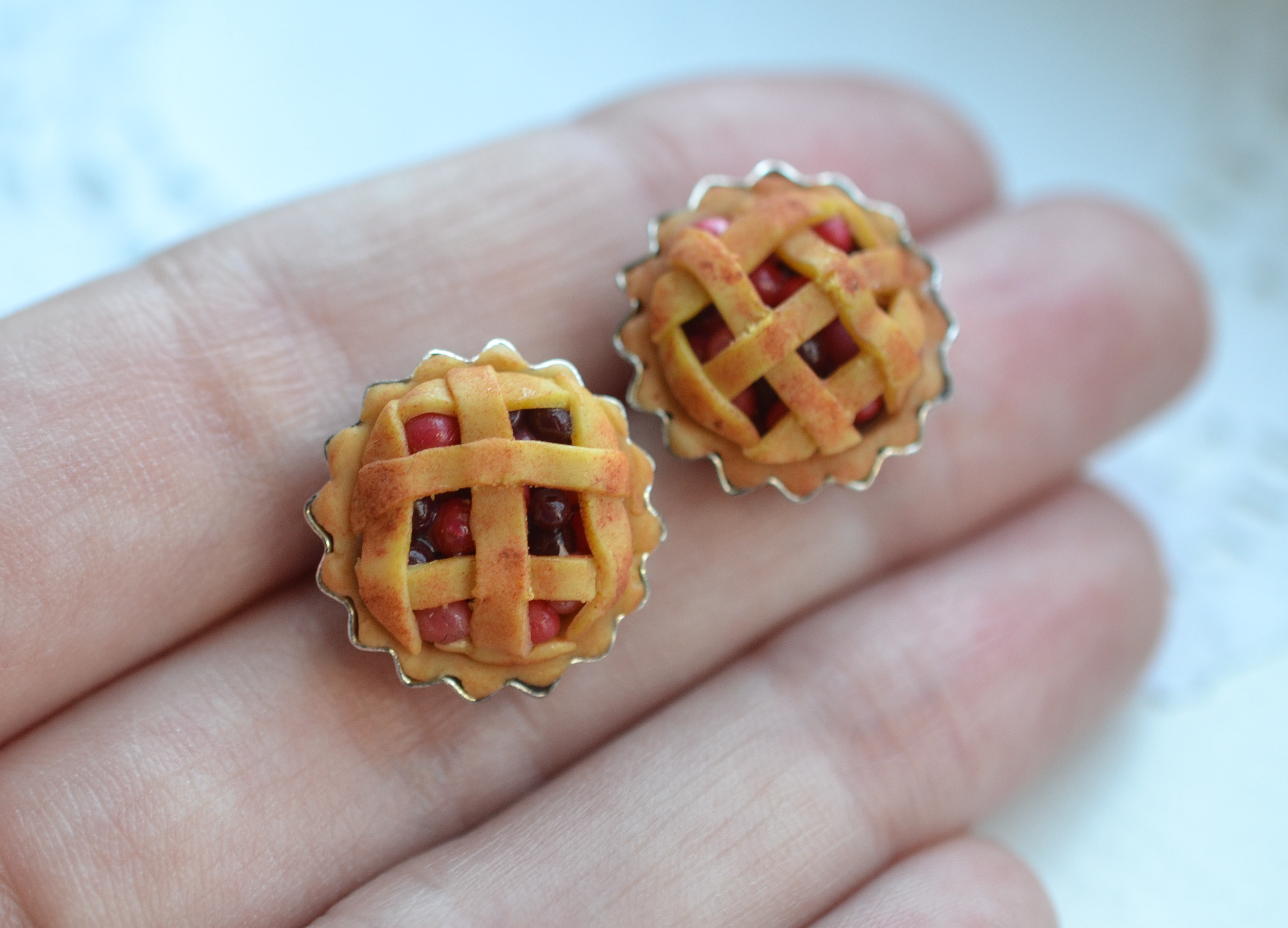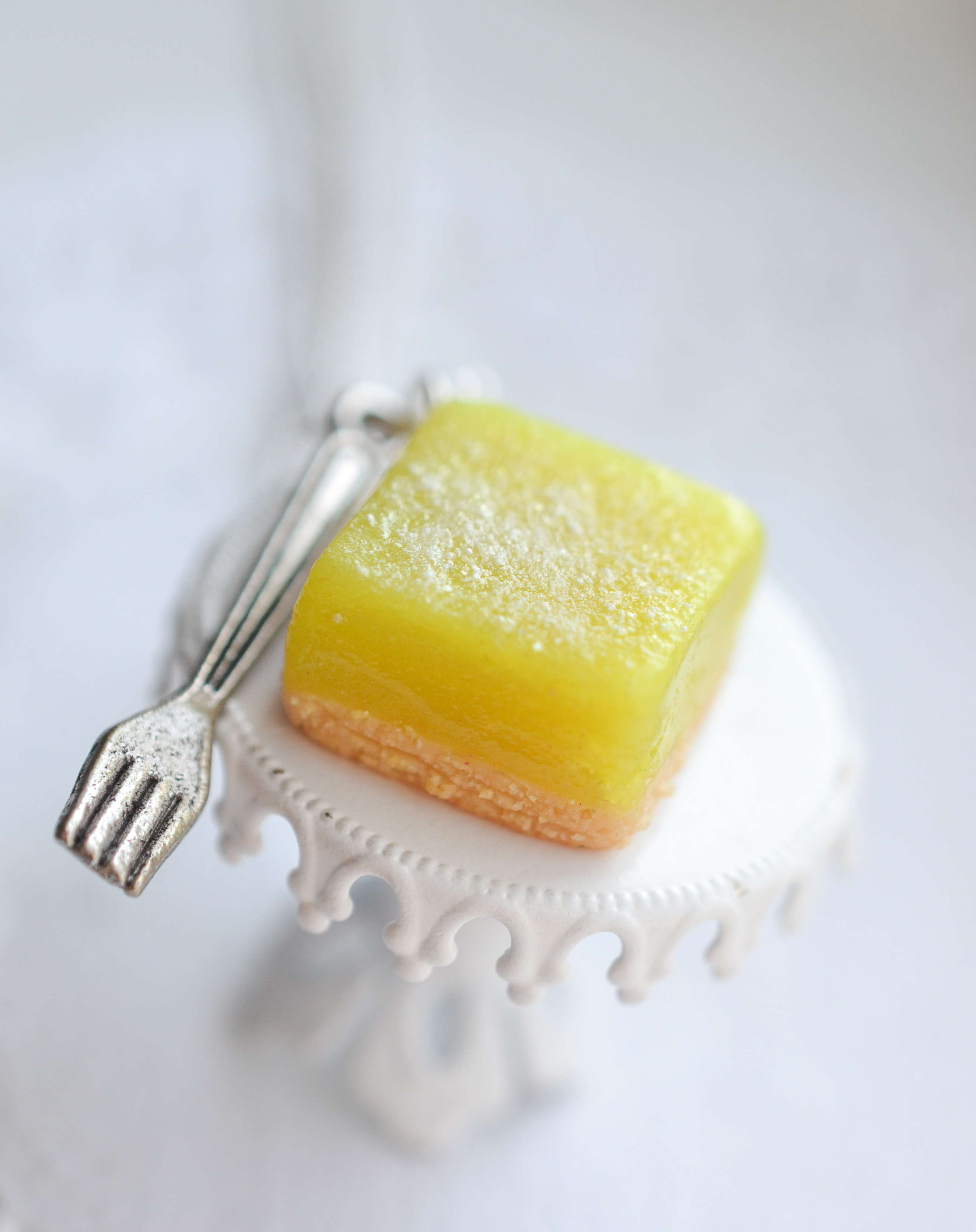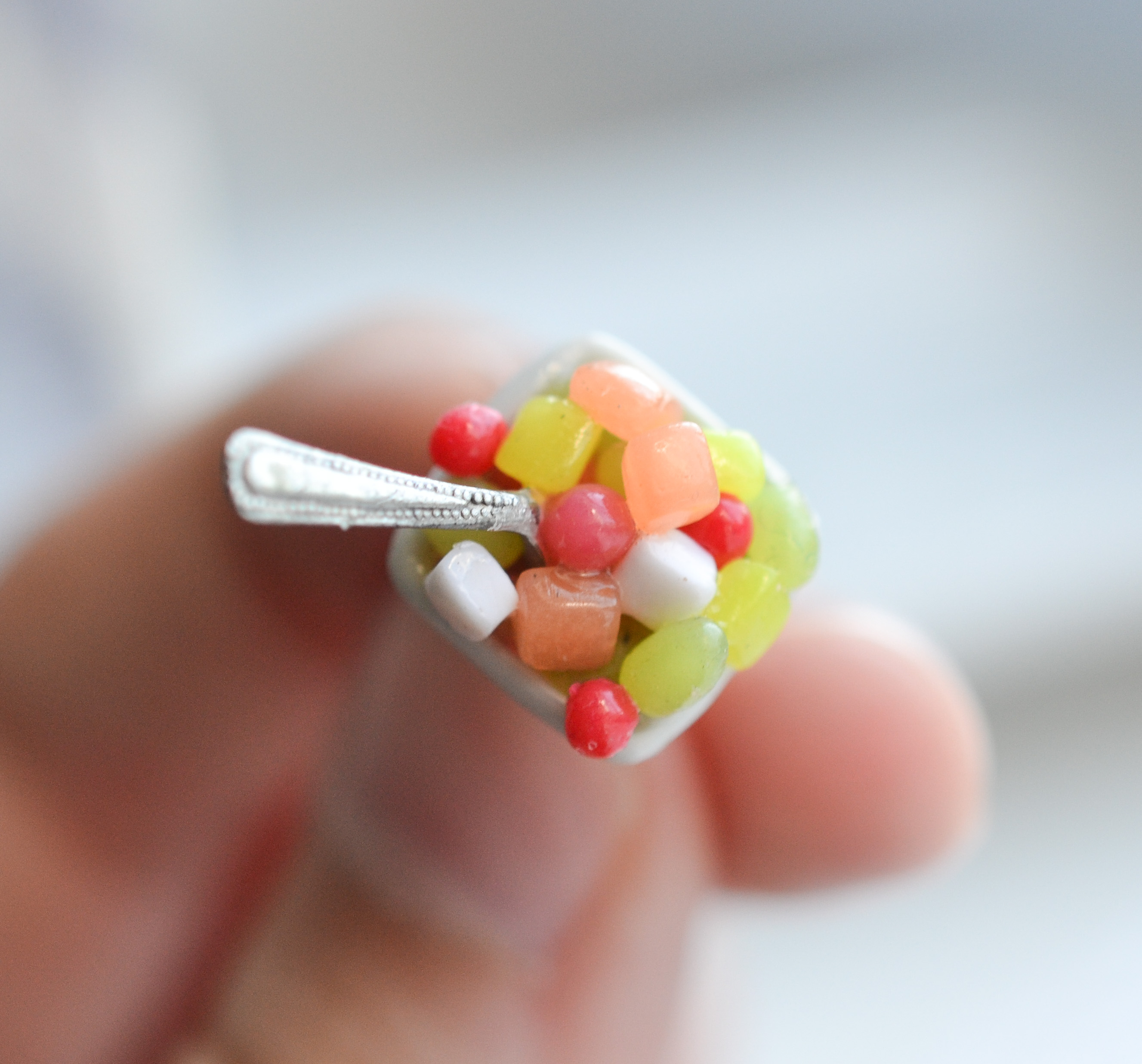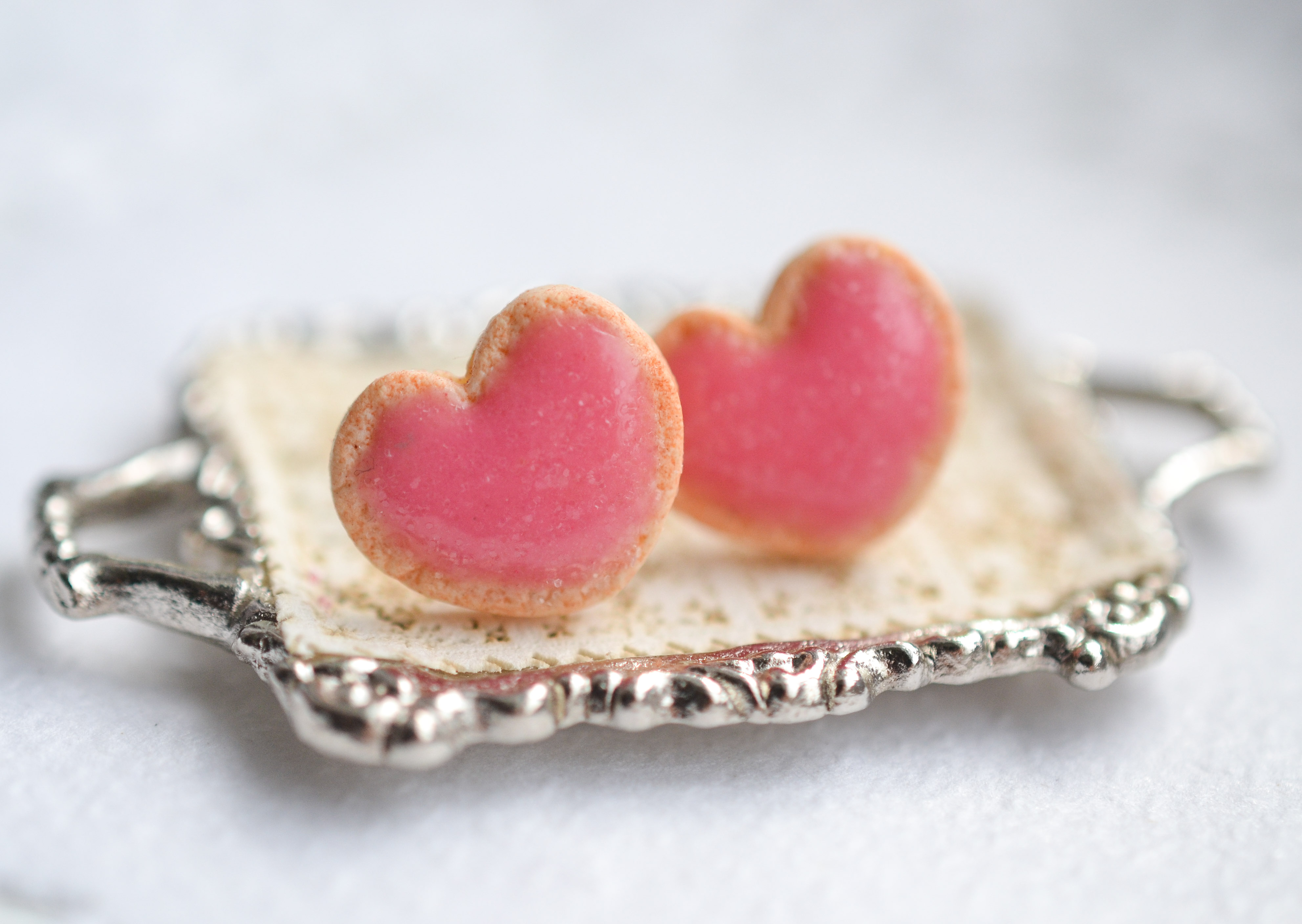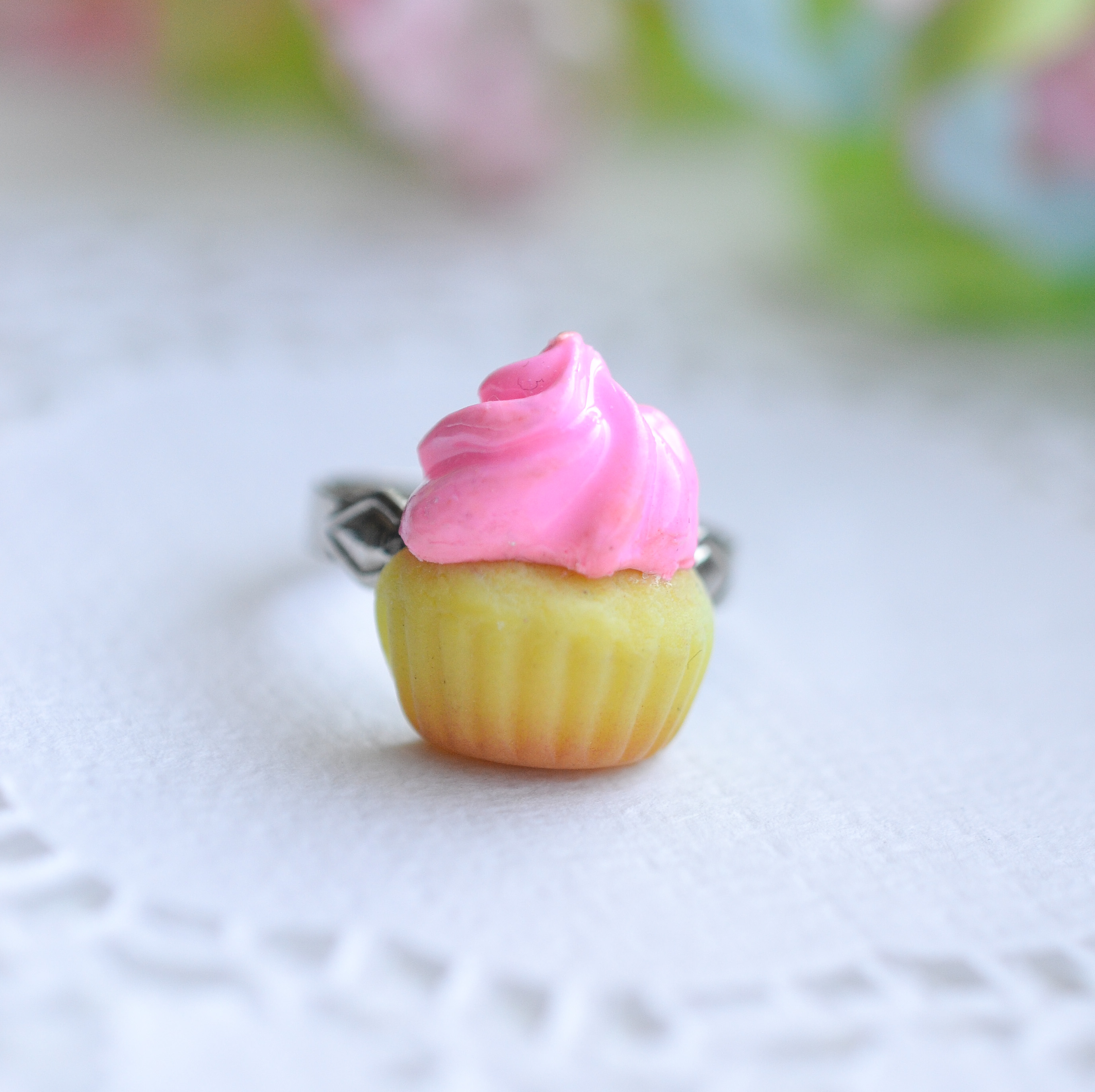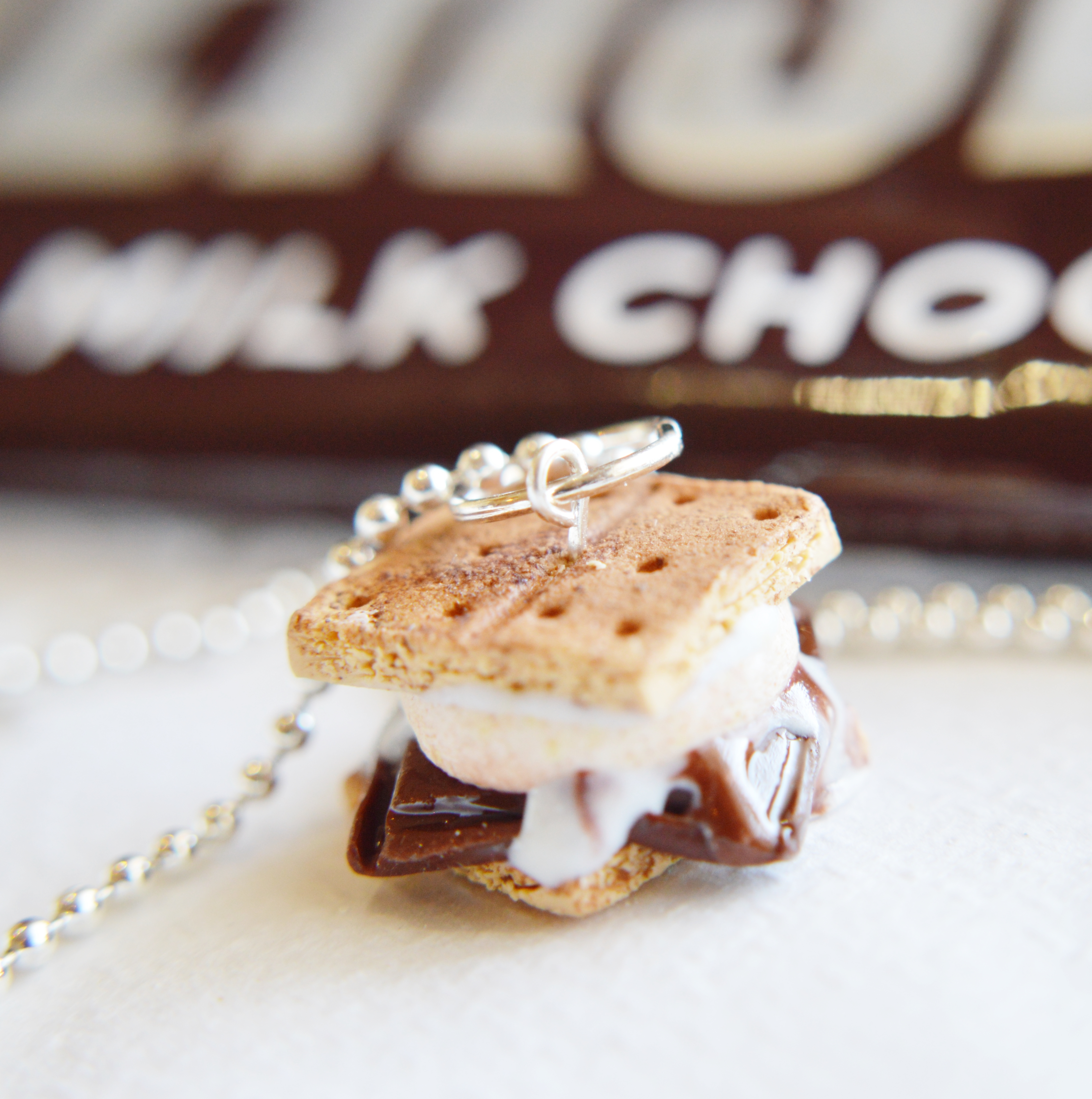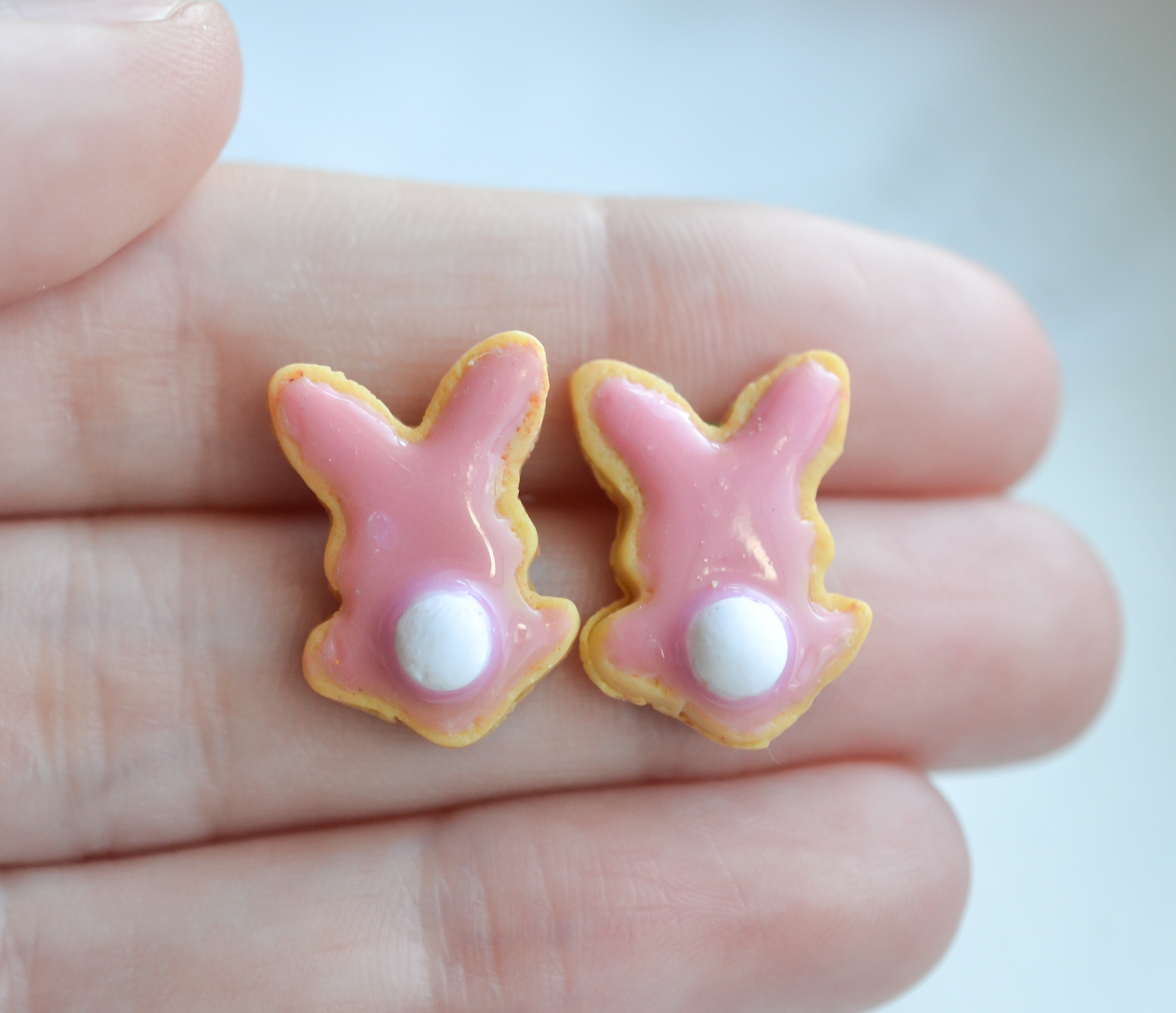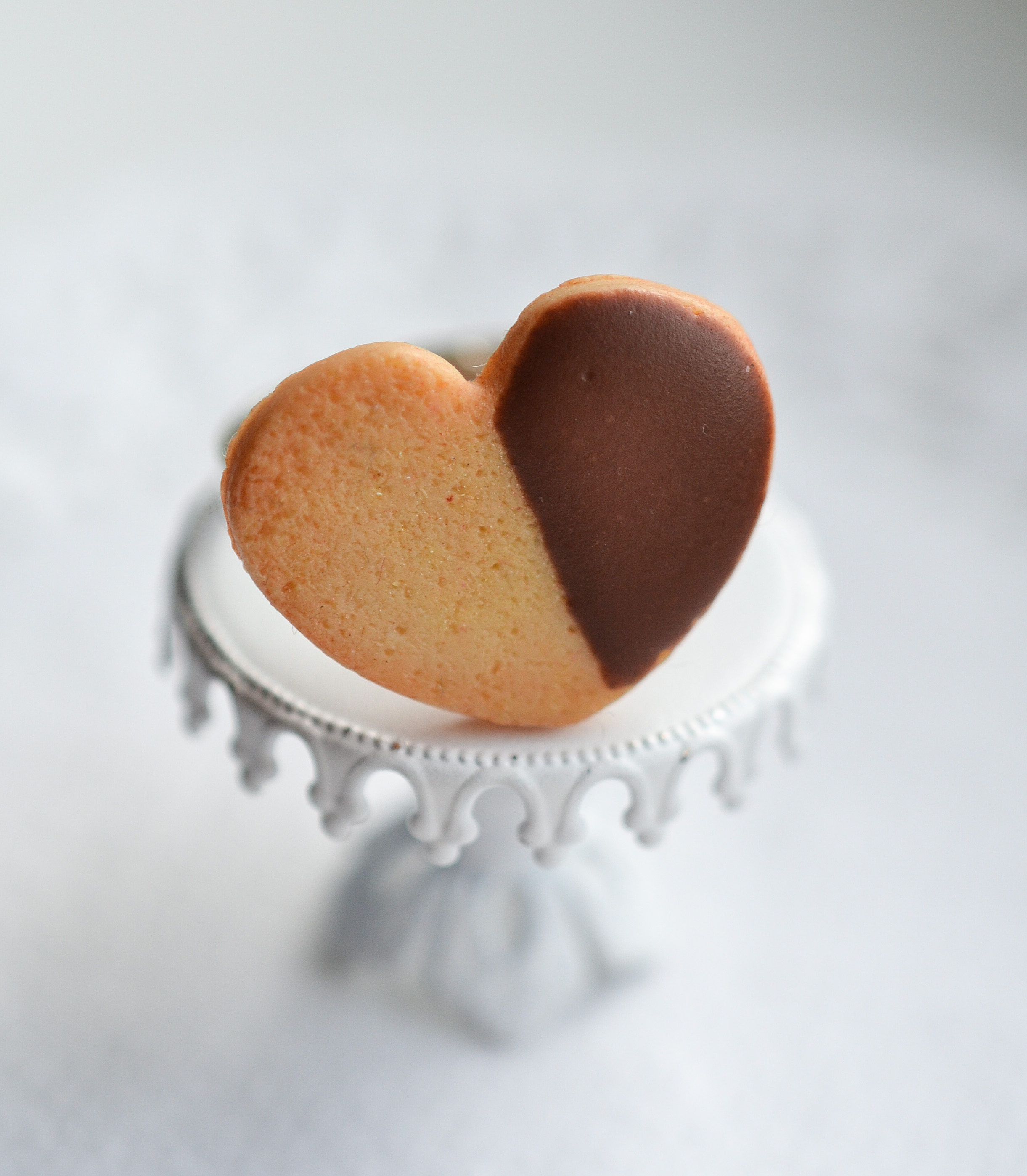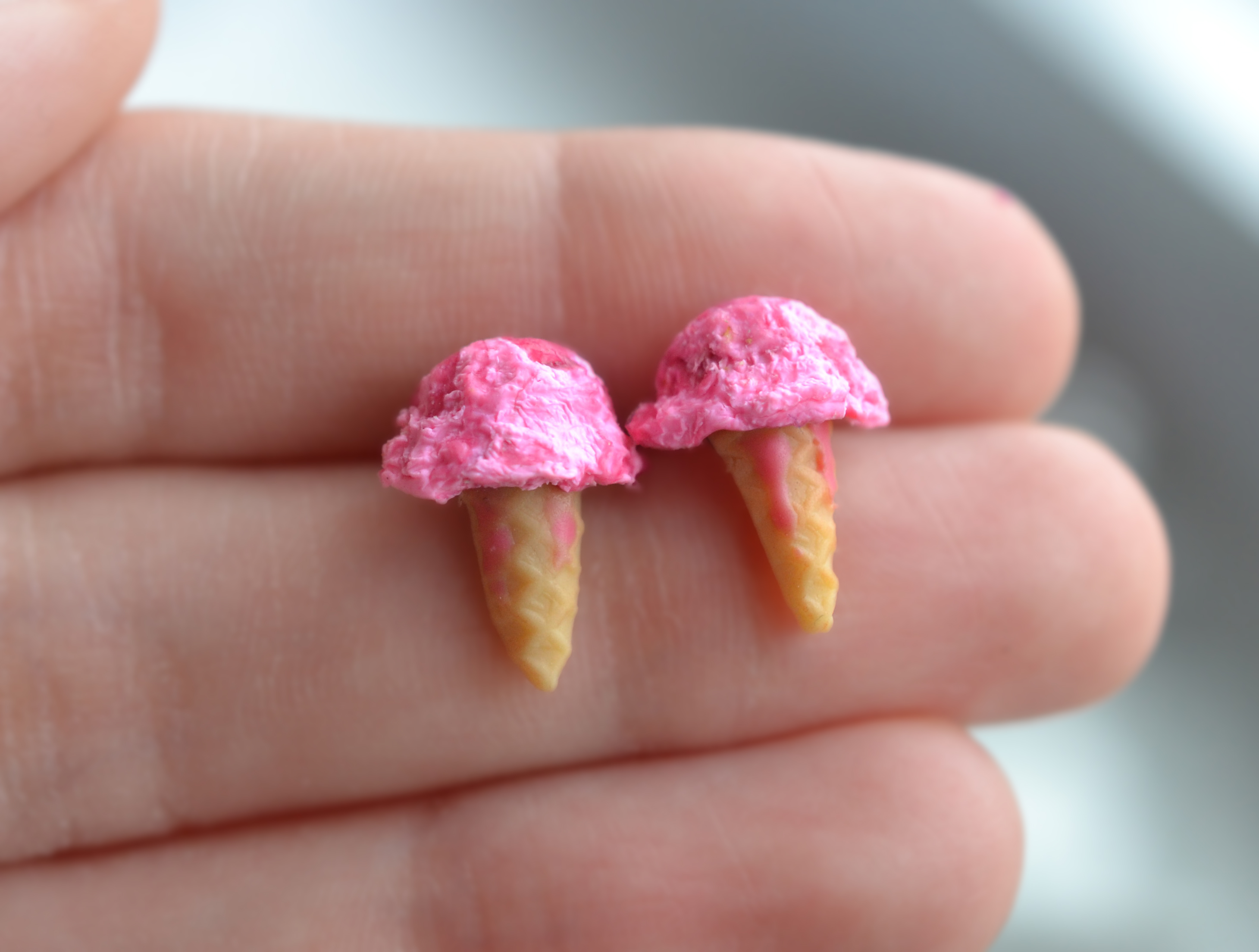Orsi’s Miniatures
| Website | Blog | Etsy | Facebook |
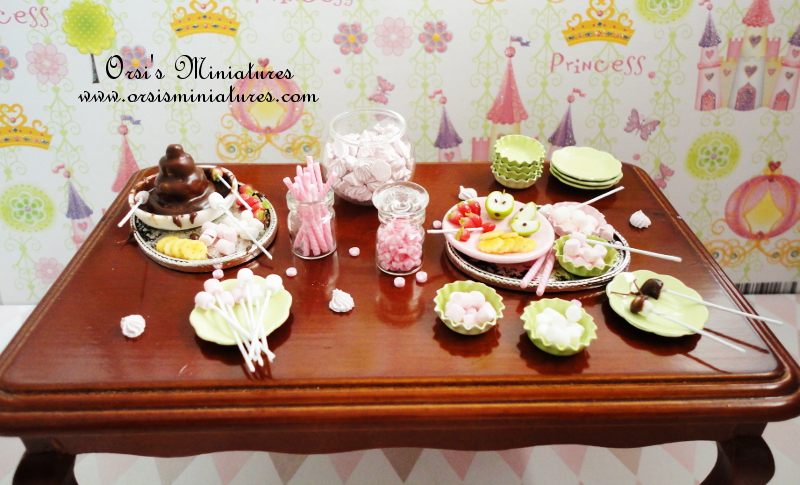 What’s your earliest memory with miniatures?
What’s your earliest memory with miniatures?
I was probably four years old, and spending the summer with my maternal grandparents. There wasn’t any other children around, so my granny gave me my mother’s childhood toy furniture: a 1:6 scale bed, 1:10 scale cupboard, armchairs, and an enamel bathtub. I spent the major part of the summer playing with those and making up stories. I still have the cupboard and that old, rusty, enamel bathtub.
How did you first get started making miniatures?
I always wanted a dollhouse, but in my childhood it wasn’t available. Hungary was under Russian occupation, so Barbie-like items couldn’t be find in the toyshops, and dollhouses were considered a bourgeois whim. I had to grow up and get a temporary job in Paris, France, to meet the intoxicating world of miniatures. Strolling on the Montmartre on a Sunday afternoon I found a shop window with a large, Parisian-style house in the front. It was the Dentelles et Ribambelles, owned by Léa Frisoni, and that afternoon sealed my fate. I spent a large part of my daily allowance there and when I repatriated to Hungary, I started to build my first dollhouse.
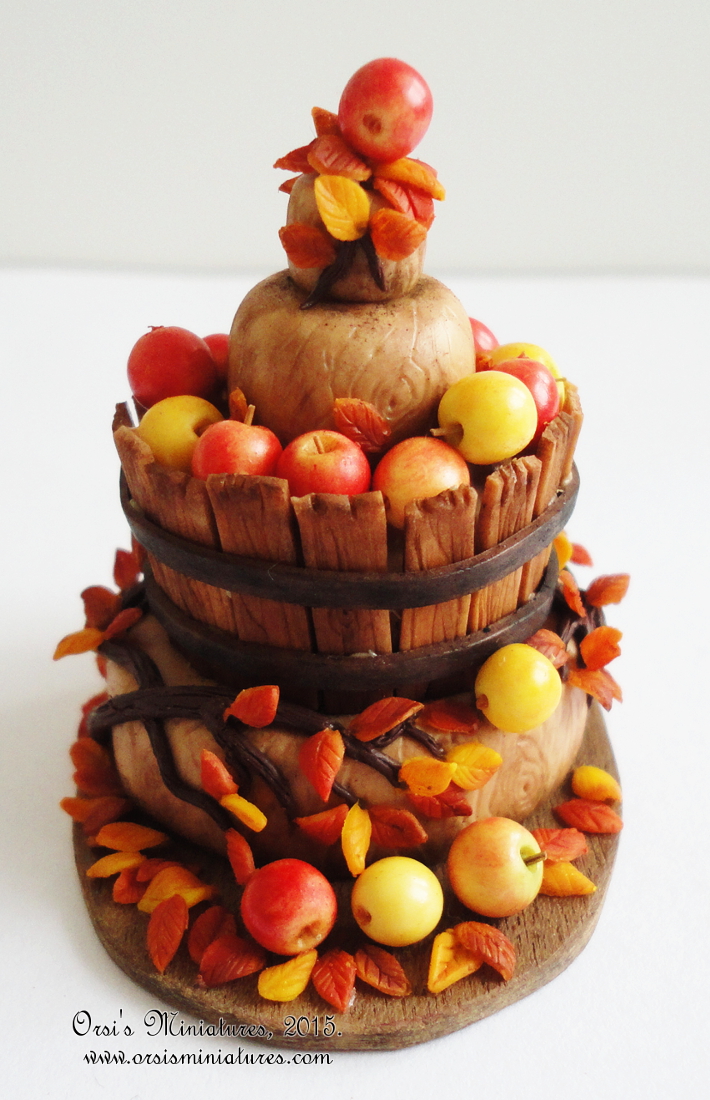 Where does the interest stem from?
Where does the interest stem from?
I wanted to become an architect just like my dad, but physics definitely wasn’t my forte in secondary school. I became an economist, but nothing can extinguish my love for architecture. Wherever I travel, I take photos of the buildings: Art Nouveau and Art Deco buildings are to die for, and I love the magnificent French chateaus and mansions, the breath-taking Gothic cathedrals, as well as the cozy, English half-timbered cottages.
Besides this, I like gastronomy; I’ve collected quite a few cookery books and I enjoy baking cakes, though I prefer the healthier versions in real life. This gives me continuous inspiration to create new pieces in miniature.
Why did you make the switch from economics to miniatures?
Being an economist is a tough task. I can’t recite how many times I heard during lectures that if I do this or that, I can be imprisoned. Charming, isn’t it?
My family is packed with people with artistic skills: my paternal grandmother was a folk art artist specialized on embroidering, weaving and lace making, who was granted with the highest honor possible in Hungary: the Master of Folk Art. 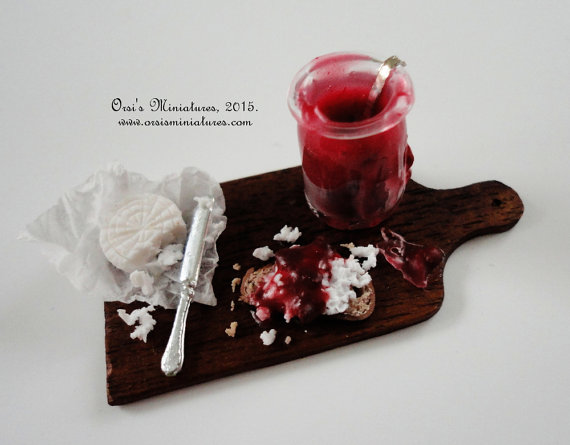 She taught me different techniques and spoke a lot about colors and patterns creating harmony in interior design. My father is an architect, our house was packed with albums and books about architectural designs and styles. It showed quite early that I inherited their skills and I would follow them somehow. Though I chose corporate finances, I was and I am a creative person… can’t sit tight and do nothing. I always have to create something. Miniatures simply put all of my previous hobbies under one roof: my love for architecture, gastronomy, glass painting, decoupage, mosaic making… I can practice all of them and more when I make miniatures.
She taught me different techniques and spoke a lot about colors and patterns creating harmony in interior design. My father is an architect, our house was packed with albums and books about architectural designs and styles. It showed quite early that I inherited their skills and I would follow them somehow. Though I chose corporate finances, I was and I am a creative person… can’t sit tight and do nothing. I always have to create something. Miniatures simply put all of my previous hobbies under one roof: my love for architecture, gastronomy, glass painting, decoupage, mosaic making… I can practice all of them and more when I make miniatures.
Do you remember the very first miniature you ever made?
My first miniature was a dollhouse. I built it without practice and knowledge, so it had several flaws and errors but I was very proud to have it. It does still exist, though I emptied it. I created it to form a simple white cube which can be opened into half, so currently it is closed and serves as a table for my Inn to the Devoted Peasant Girl dollhouse, which is a medieval English inn from Nottinghamshire.
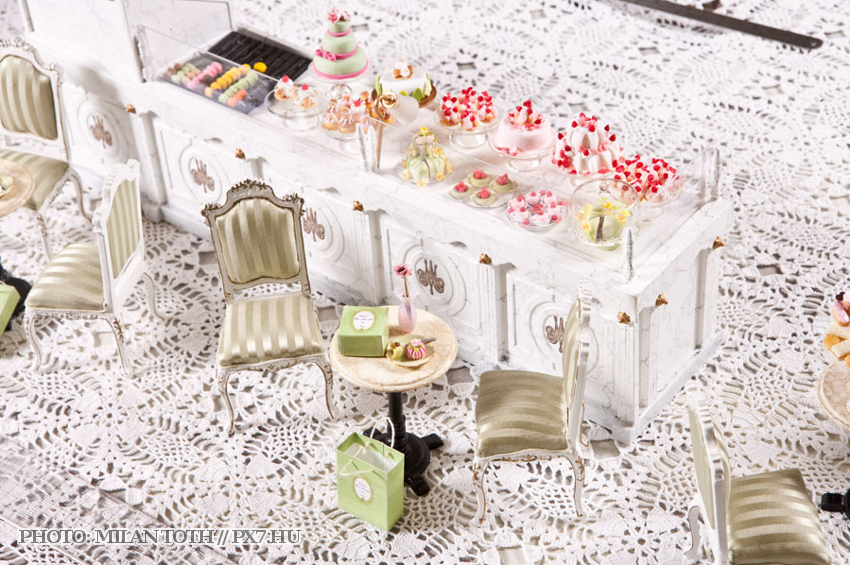
What is your favorite type of miniature to make?
Though I’m a foodie, my favorite thing is creating the exterior of a building. I enjoy building houses, and aging the exteriors is always the most fun. I especially like the old houses with broken pipes, leaks, old plaster, and more.
Do you have a favorite type of miniature food you like to make?
I don’t have a particular favorite, but I have to admit I like the ones which require either research or a challenge. I like working on historic food, where I can learn about the era, get more information about the eating habits, interior design, life in general and so forth.
Career highlights you would like to mention?
Winning a scholarship to the Guild School was definitely one, and getting my Fellow Cube two years later. It was an honor to make wrought iron furniture in a courtyard which belongs to a Mulvany & Rogers house. I consider my latest roombox a highlight as well: it is a 1 inch scale Cape Cod style living room. This was my first American theme roombox, which earned me 1st prize in an International contest organized by the Hungarian Doll Society. It is one of my personal favorites as well, which will remain in my possession.
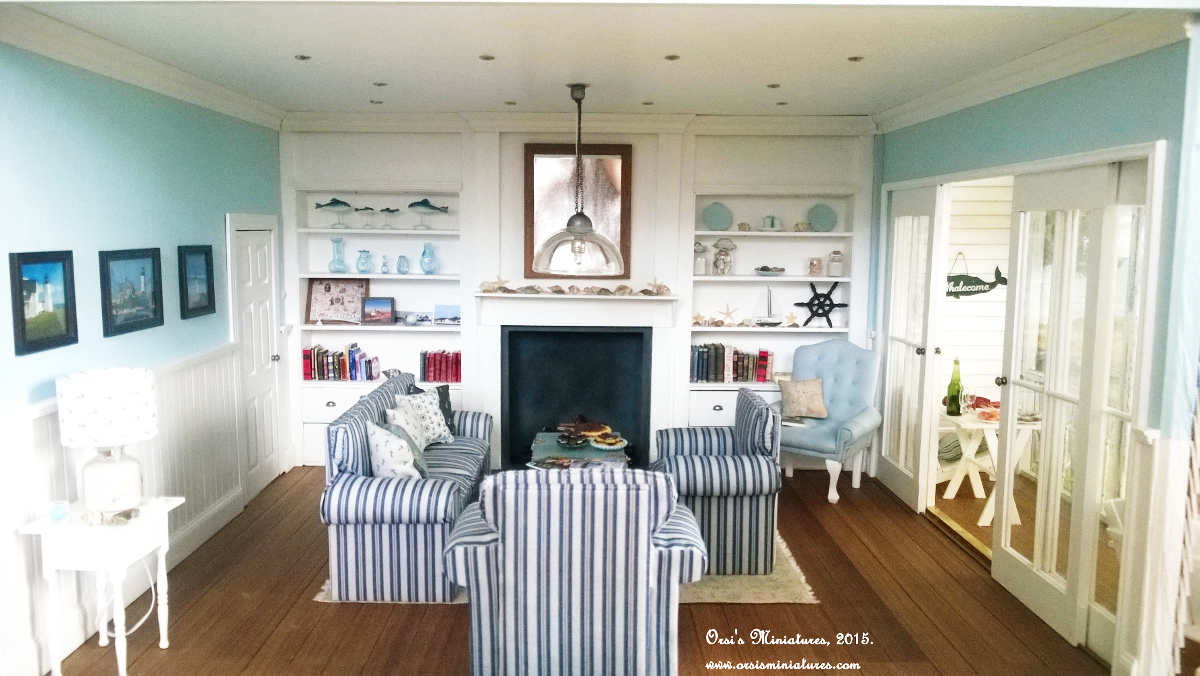
How did you first become involved with The Guild of International Miniature Artisans?
I met Molly Cromwell 9 years ago in Vienna on one of her tours for miniaturists where my food was very well received. She offered me a table at her Orlando Show and talked me about the Guild and the scholarship opportunity. First I became a regular member, then a year later I applied for scholarship and won it.
For those that don’t know, what is the value of the Guild?
I think the biggest value of the Guild is Guild School and a Guild School scholarship. The Guild School itself is a perfect opportunity to learn new methods, to meet people who have the same interest, and it’s a place where you can share your knowledge. As it is located in a small town in the NorthEast of the U.S., it is very pricy to go there from Central and Eastern Europe (especially if we take into account the far lower wages and salaries). Therefore the scholarship provides an amazing chance to those who have the talent. For me, it meant a lot and I still profit from it when I create new items.
What advice would you give to new miniaturists? 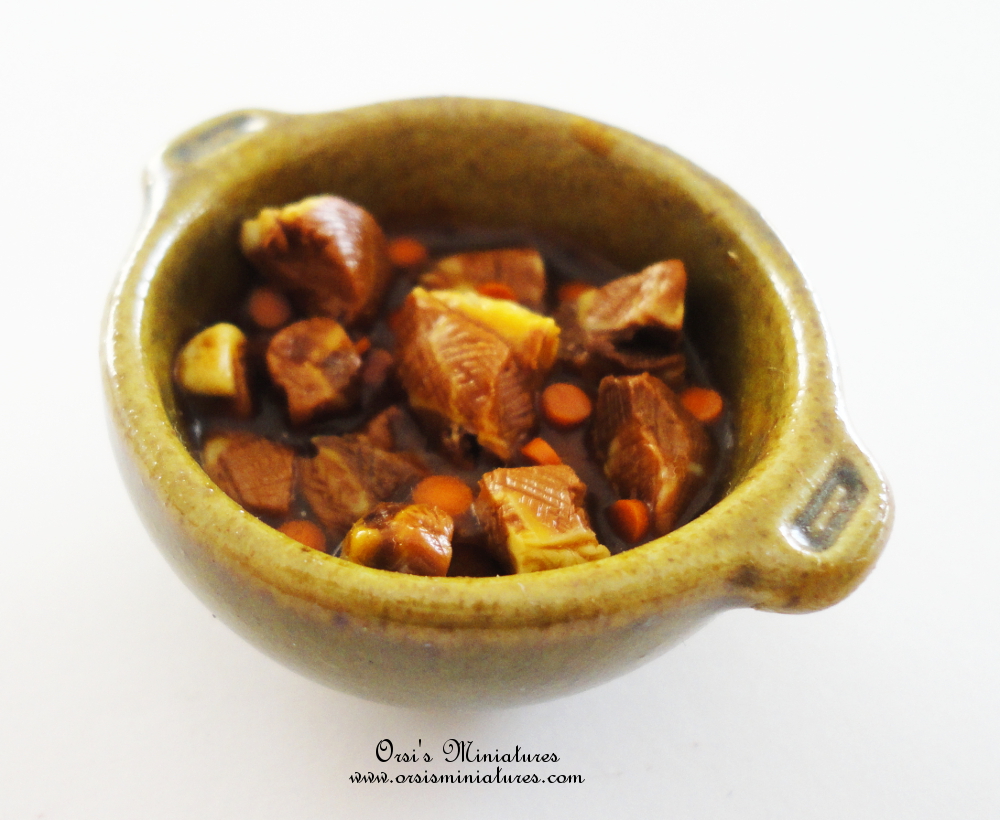
Put faith into yourself, believe that you can achieve your aim. When you are using new materials, always try first before you apply the item on your final piece, and make sure to use good quality materials.
Favorite miniature you own?
I adore the glass items made by the amazing German artist Gerd Felka. I have a small collection of his beautiful whisky bottles, vases, bowls, and tiny perfume bottles.
What inspires you?
Everything: a play in a theater, an old city, a film, a painting, a good book.
What is the most memorable miniature you have ever seen by another artist?
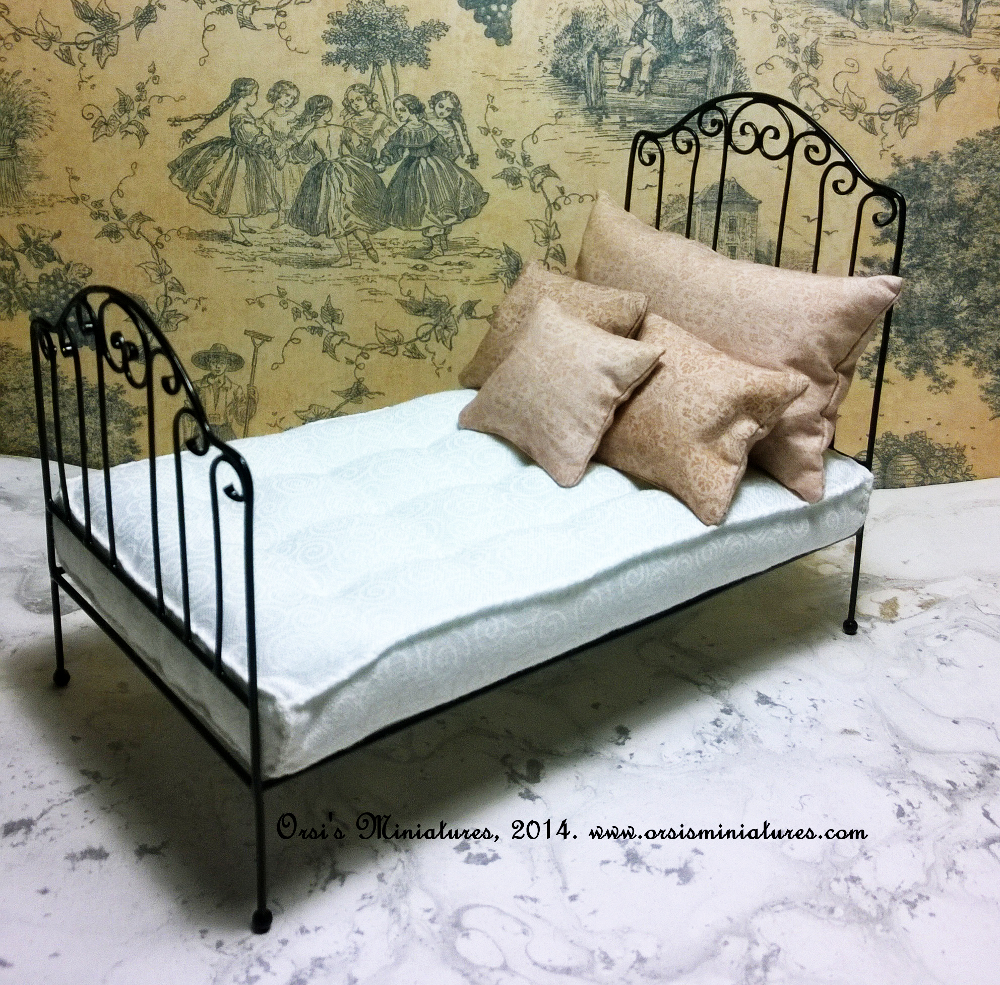 I can recite dozens of work. Everyone who has visited the Thorne Rooms at the Art Institute of Chicago would agree with me that those are the most marvelous miniatures we have ever seen. Same goes for Mulvany & Rogers,whose houses are outstanding; they capture details in a unique way.
I can recite dozens of work. Everyone who has visited the Thorne Rooms at the Art Institute of Chicago would agree with me that those are the most marvelous miniatures we have ever seen. Same goes for Mulvany & Rogers,whose houses are outstanding; they capture details in a unique way.
But if I can choose only one, it would be a mind-blowing iron bed with a “working” dragon that spits flames, made by my former Guild School instructor, Alan Hamer. He told me it was me who inspired that bed when he sent me some photos about the half made bed, and I just told him my ideas about how to finish it.
Why miniatures?
It is simple: because we can create things in miniature we can’t afford or can’t have in real life. I will never have the chance to own a French townhouse, a Cape Cod cottage or a French Chateau in real life, but I can built them in miniature. I create dreams and test my limits with every new project, and I gain knowledge about different historic periods. I think that is what still appeals me, the continuous challenge. I’ve learnt way more about history, architecture, cuisine and interior design from making miniatures than I had learned in previous decades.
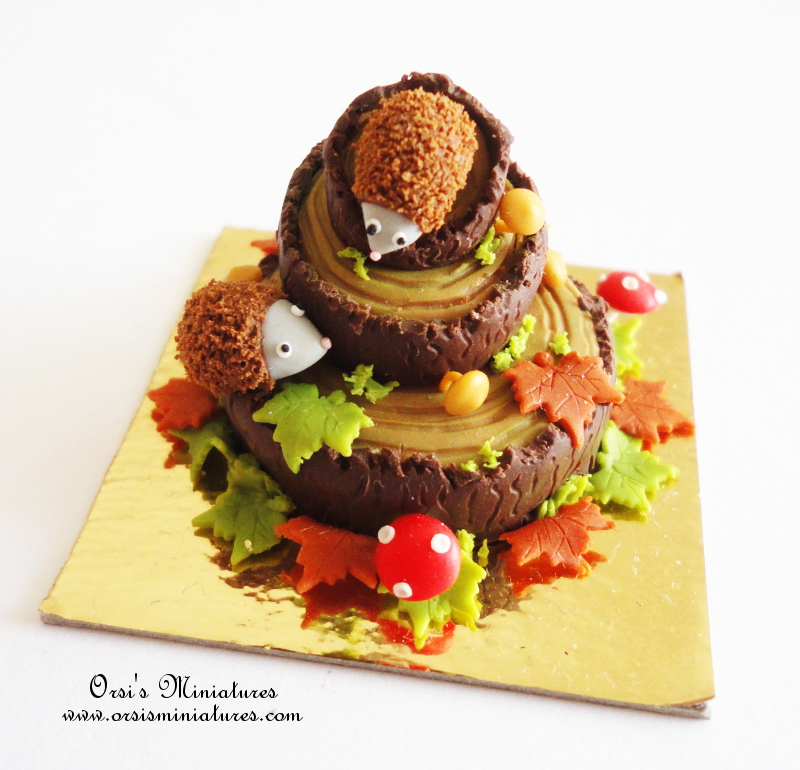 What’s to come from Orsi’s Miniatures?
What’s to come from Orsi’s Miniatures?
My next miniature show will be the Chicago International where I will introduce both new food items and new metalwork. Currently, I work on a quarter scale house, but this is only a short excursion. Quarter scale is really not my favorite, we lose too many details, so I will stick to 1 inch scale in the future. I will widen my historic food line from Tudor to Victorian, concentrating on historically accurate raw food. Because we tend to forget the apples, pears, melons, and more weren’t the same as they are today.
Words you live by?
The sky is your limit. Your sky. Your limit.
Other activities you enjoy?
There are many things on my plate I enjoy besides miniatures, though I have to tell you miniatures infiltrated almost every hobby of mine, they are simply feeding on each other. I like traveling and visiting cities, particularly historical parts, as history is my absolute favorite. I like doing research on different historical eras when I work on a project.
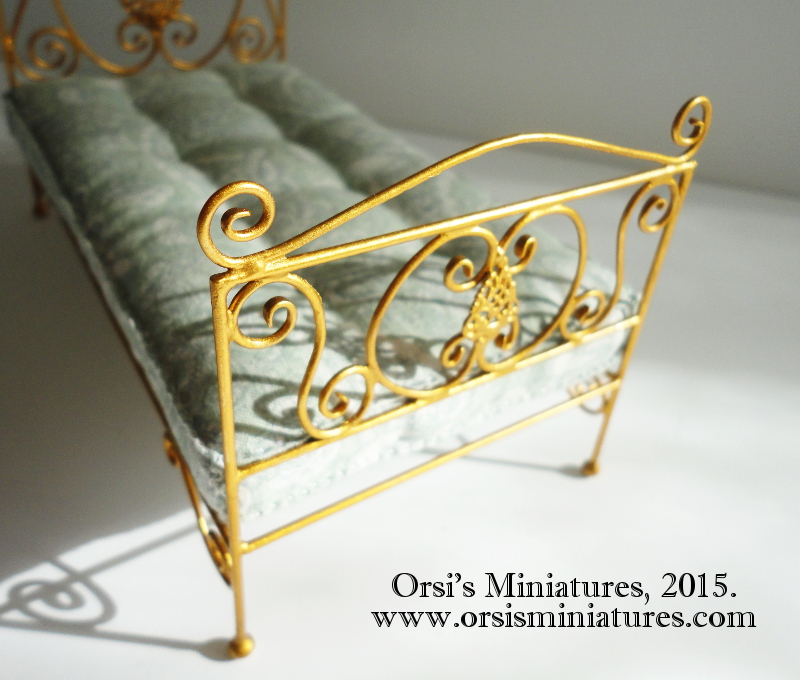 I like paintings, Monet, Mucha, Renoir, Vermeer and Rubens are my favorites.
I like paintings, Monet, Mucha, Renoir, Vermeer and Rubens are my favorites.
I like cooking and eating, though my cakes and pastries are more on the healthy side. Interior design has been part of my life since my teenage years. I particularly enjoy DIY-ing around the flat, especially furniture painting. Certainly I like reading and adore my e-reader as it makes possible to bring a large library with me every time I’m traveling. Last but not least, I like classical music. In elementary school, I specialized in music so it has been part of my life since childhood. Music always reflects our mood, our personality, and it brings joy and helps to bear the loss. I simply can’t exist without music.
Orsi’s Miniatures was created by Orsolya Skultéti, who is originally from Hungary. Take a closer look at her exquisite work by visiting the Orsi’s Miniatures website. Shop her miniatures on Etsy, and follow updates on Facebook and Orsi’s Minis blog!
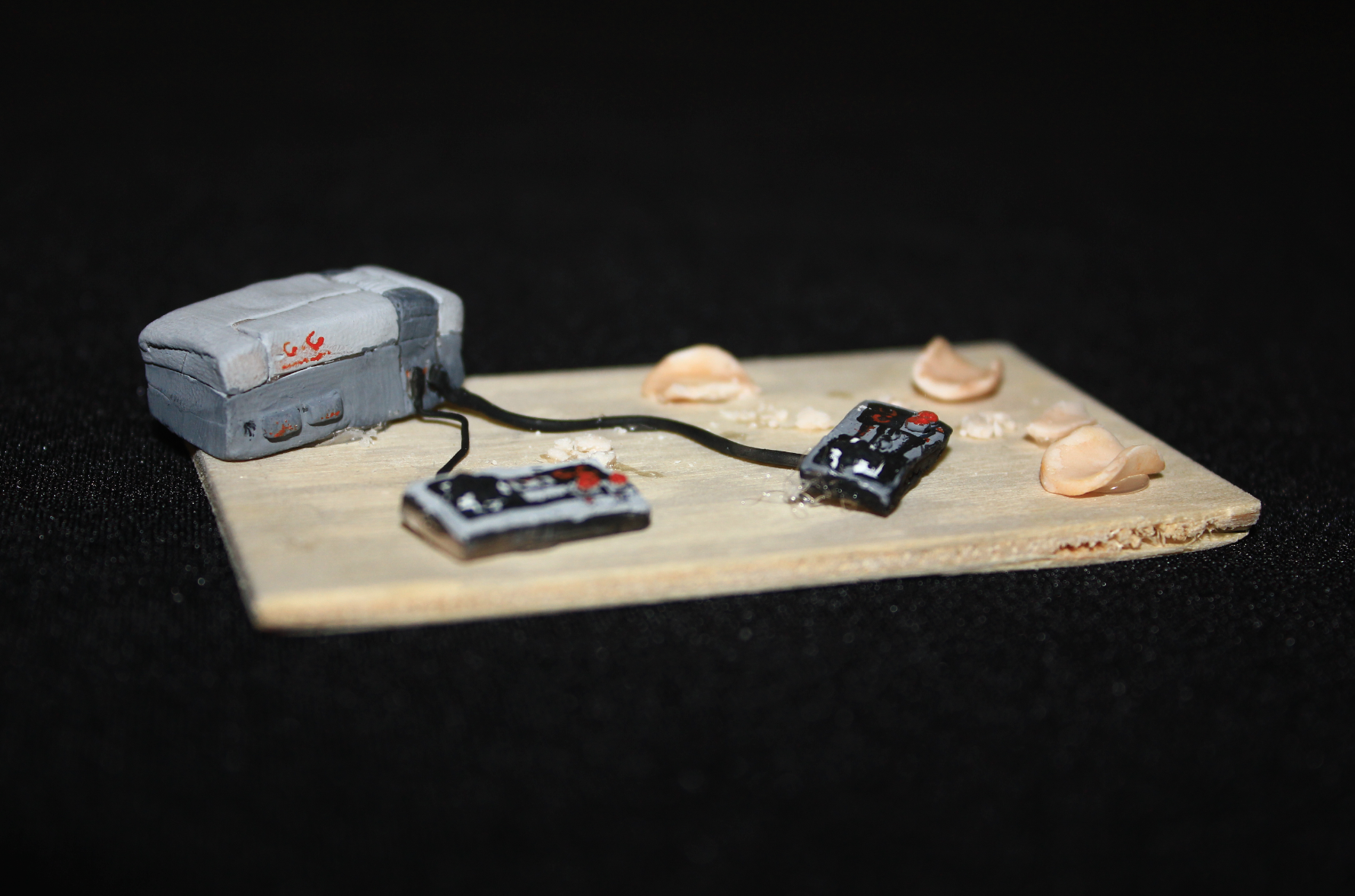 What’s your earliest memory with miniatures?
What’s your earliest memory with miniatures?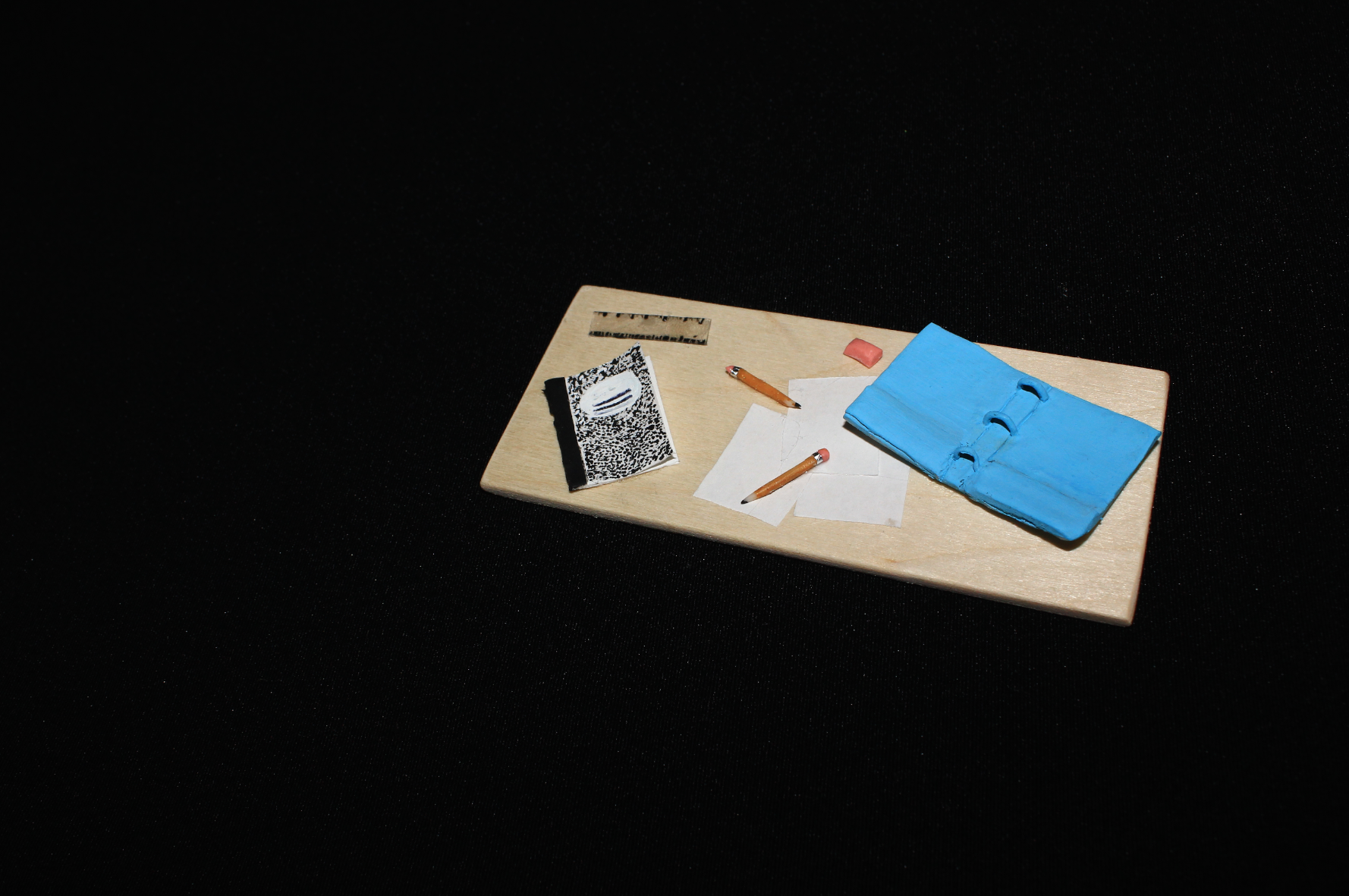 What are your favorite miniatures to create?
What are your favorite miniatures to create?